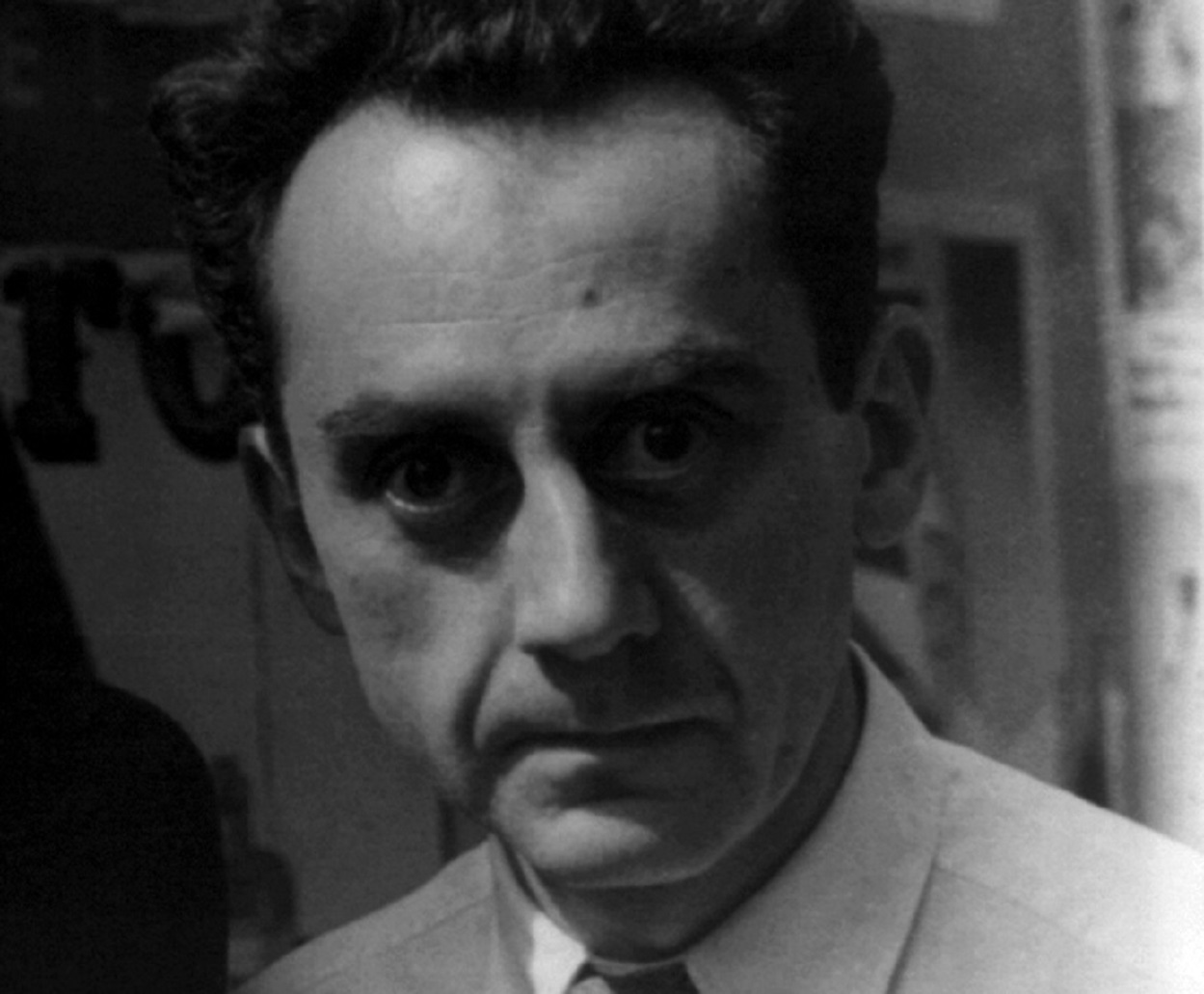The brave, iconoclastic Lee Miller was many things—model, muse, artist, and more. Yet the more she pushed herself, the higher the price she paid.
1. She Was More Than Her Looks
Lee Miller had one of the most perfect faces of the 20th century, and her icy beauty was just the beginning. An unbelievable coincidence turned her into a model, but it was her own fiery determination and sharp wits that brought her first to the peak of Parisian elegance, then to the basest horrors of WWII. Tragically, these horrors would be her downfall.
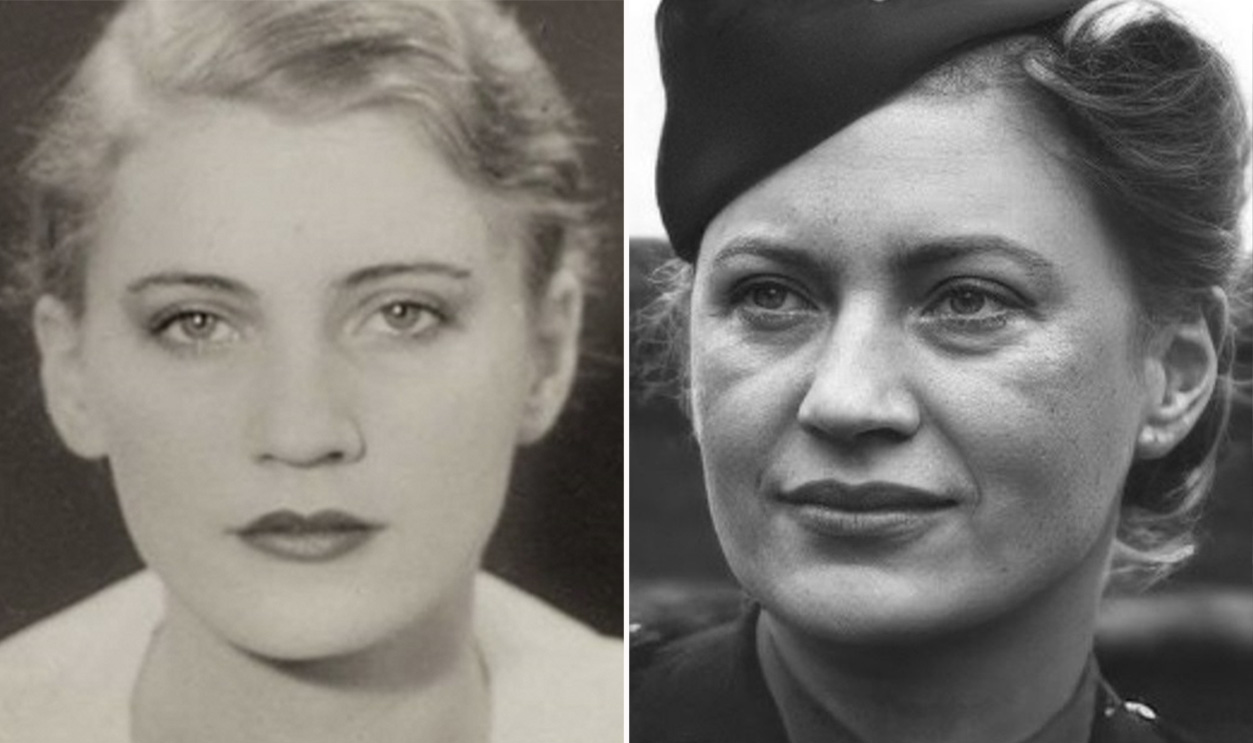
2. Her Father Was Creepy
Born Elizabeth “Lee” Miller in 1907 in New York, her childhood was dark and bizarre. Lee’s father Theodore was an amateur photographer and introduced her to the art when she was young. But his tactics were utterly disturbing. The elder Miller made this introduction by often photographing little Lee without her clothes on, with the plausible deniability of an “artistic” perspective.
Although Lee never commented on these photographs, some have called them “very dubious”. Sadly, there was so much more where that came from.
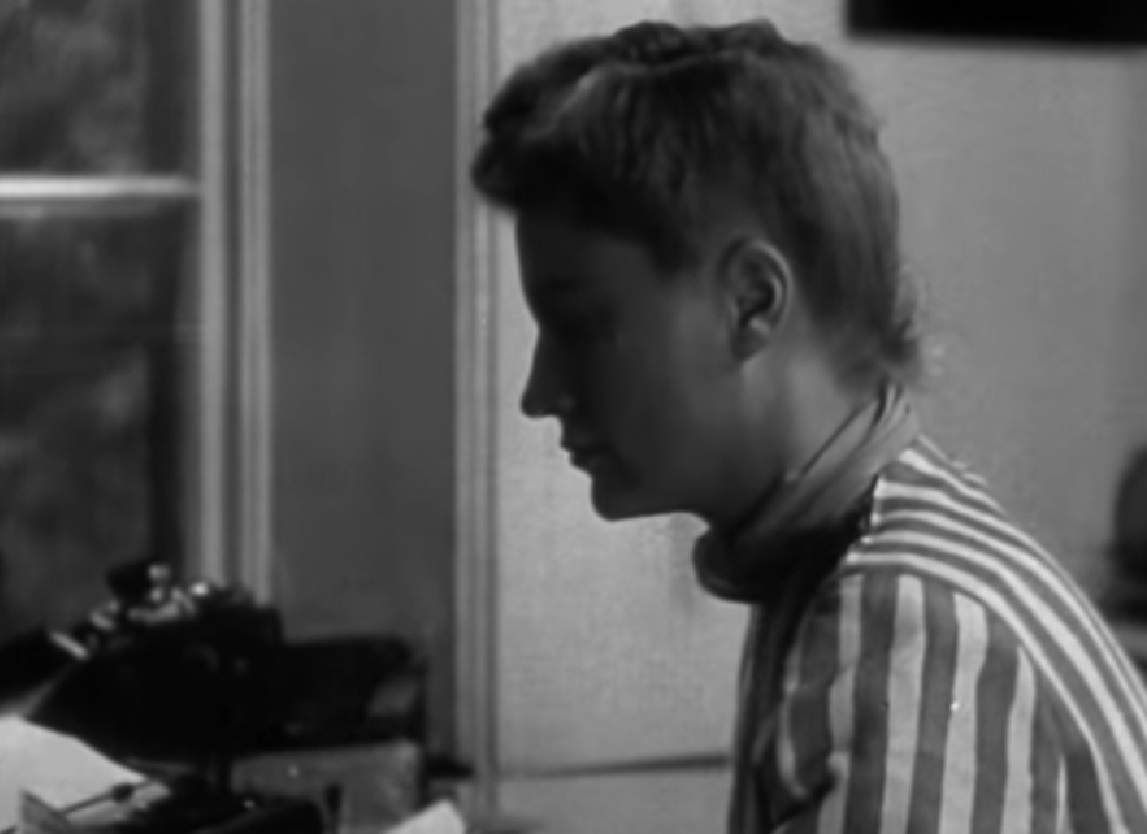 Artemis Film, Lee Miller: Through the Mirror (1955)
Artemis Film, Lee Miller: Through the Mirror (1955)
3. She Experienced A Brutal Attack
Around the same time that her father was positioning her in this extremely vulnerable way, an incident happened to Lee that would haunt her forever. While she was staying with a family friend, someone—one report says a sailor—took full advantage of the seven-year-old Lee and gave her gonorrhea.
For a year, Lee had to go into the hospital twice to recover, and her parents had to sterilize everything she touched in her own home. The consequences began to show.
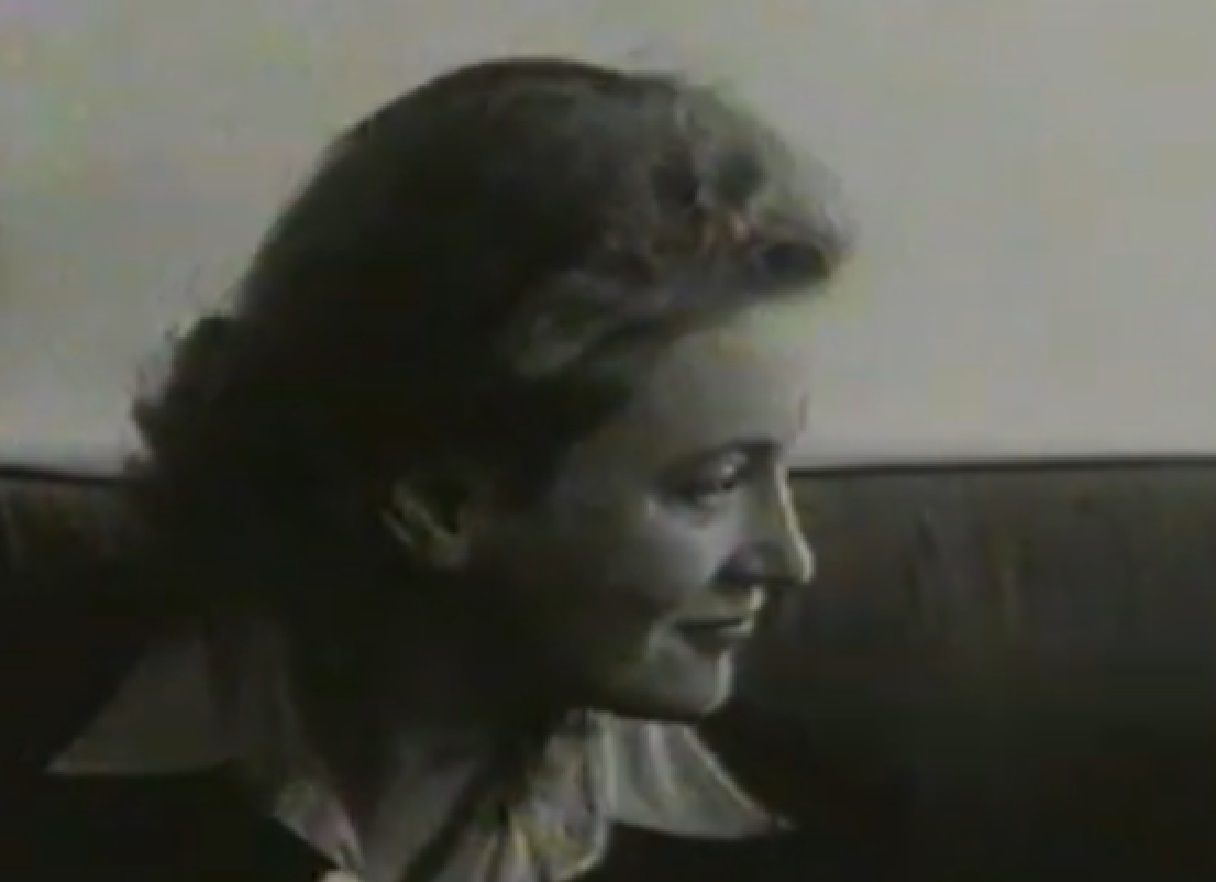 Artemis Film, Lee Miller: Through the Mirror (1955)
Artemis Film, Lee Miller: Through the Mirror (1955)
4. She Rebelled Early
With such a tumultuous and inappropriate childhood, it’s no wonder Miller began to struggle in school. Only, it was far more than a little rebellion. She became so unruly that every school she attended in her local area ended up expelling her. By the time 1925 rolled around and Miller turned 18, she ran way to Paris, where she studied lighting, costume, and design.
Eventually, she posted up in New York City, living in Manhattan and ready to make it on her own. But fate had another curveball for her.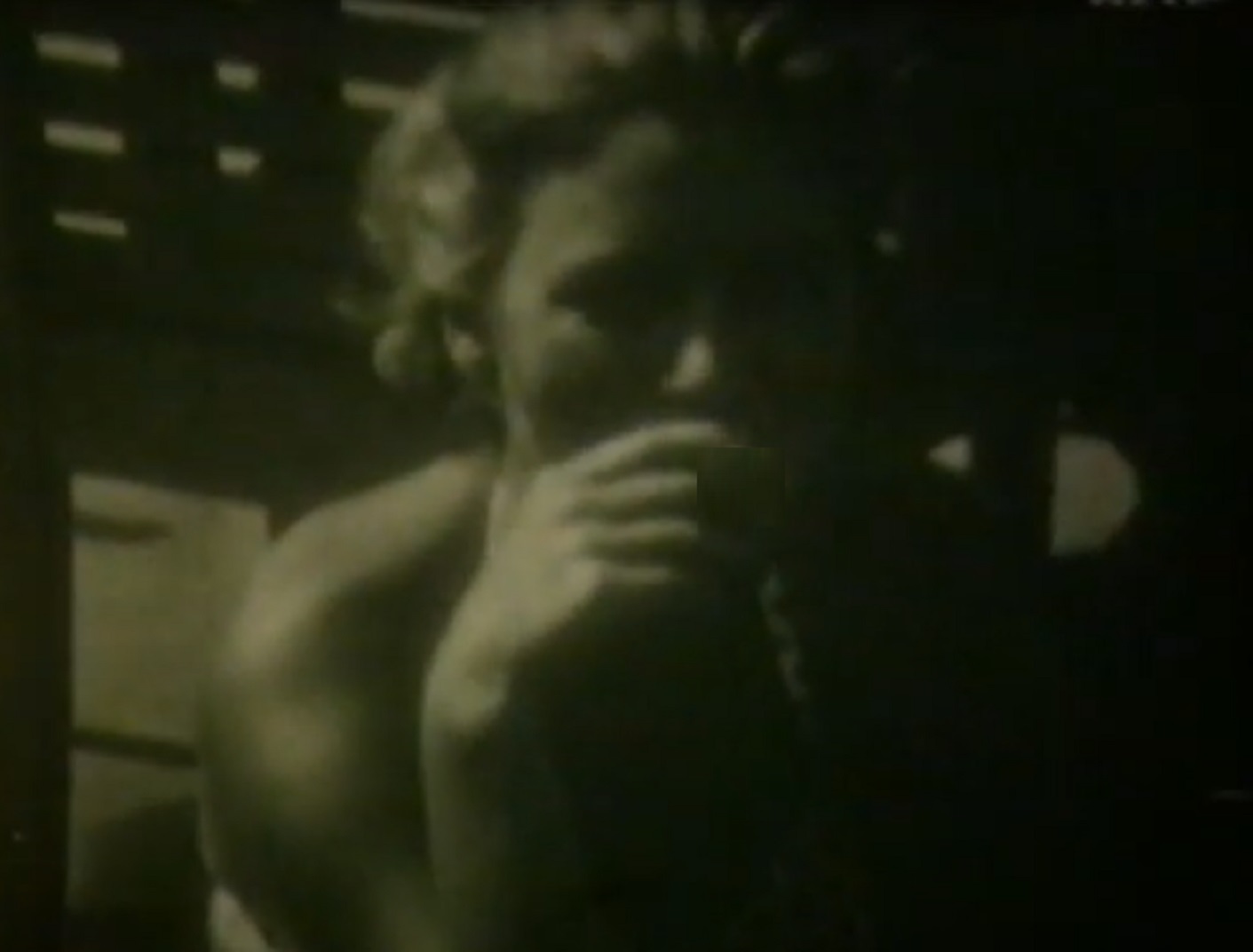 Artemis Film, Lee Miller: Through the Mirror (1955)
Artemis Film, Lee Miller: Through the Mirror (1955)
5. She Almost Lost Her Life
In 1927, at the age of 19, Miller had one of the most important chance meetings of her life. While walking in Manhattan, she wasn’t paying enough attention and almost stepped out in front of a car on a busy street. The man who stopped her happened to be none other than magazine mogul Conde Nast, who published Vogue.
When Nast looked at the woman he’d just saved, he got a momentous idea.
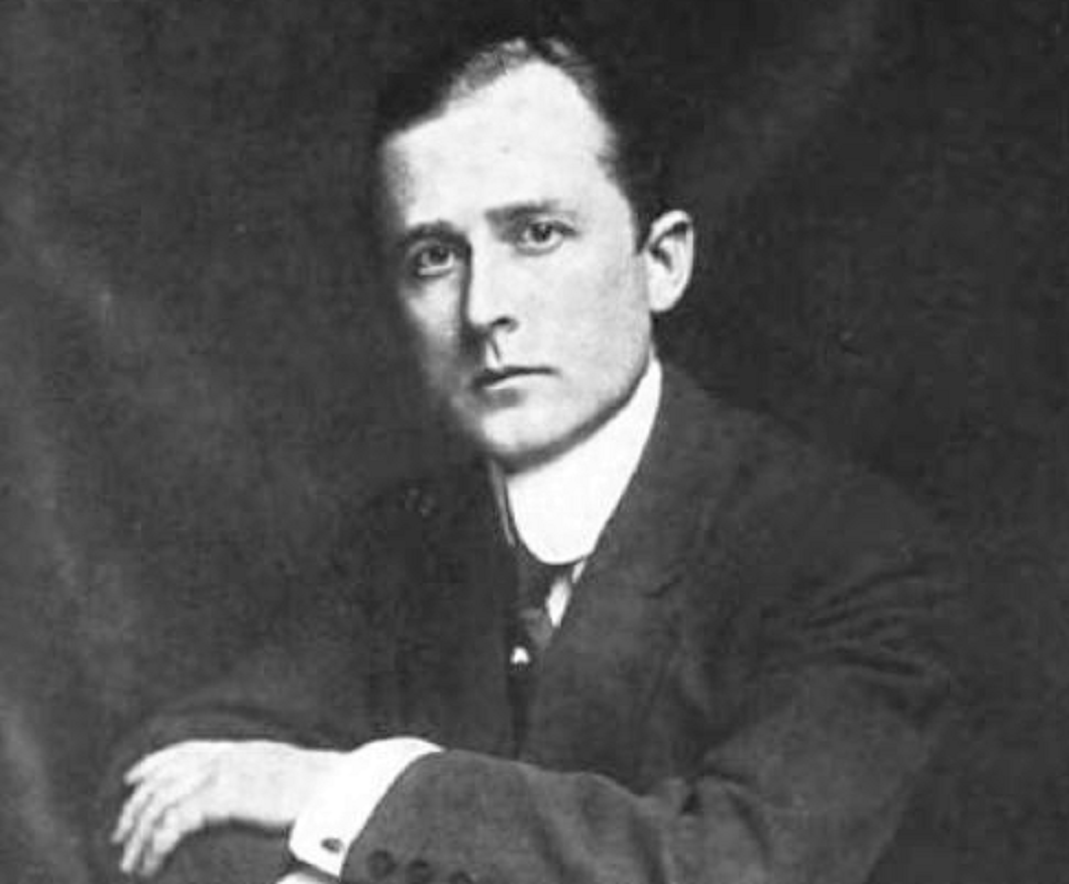 Unknown Author, Wikimedia Commons
Unknown Author, Wikimedia Commons
6. She Turned Into A Cover Girl
Vogue at the time was looking for a more modern kind of model—one, as it happened, who had Miller’s clean, icy good looks. That March, she appeared on the magazine’s cover in an illustration, donning a blue hat and pearls. After that, she was everywhere.
Within two years, she’d become a top model in New York, with the best photographers begging to snap her. Then it all unraveled in an instant.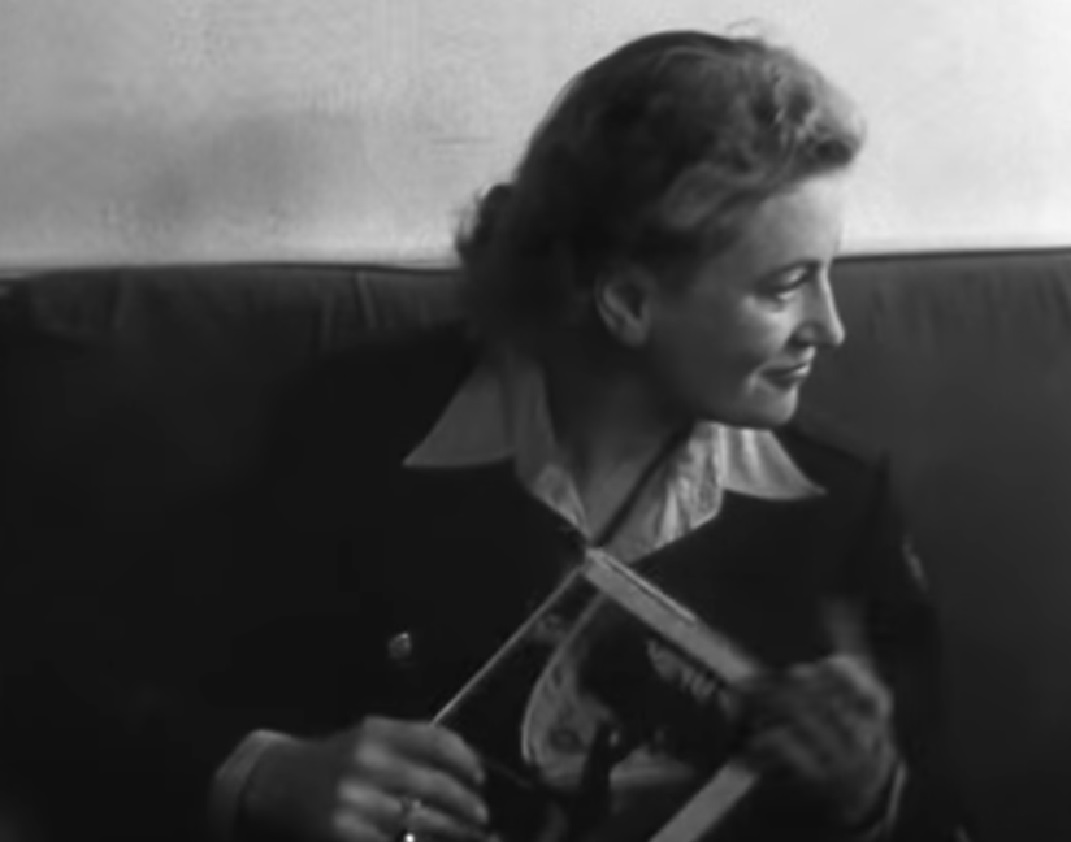 Artemis Film, Lee Miller: Through the Mirror (1955)
Artemis Film, Lee Miller: Through the Mirror (1955)
7. She Disgusted Her Critics
After gracing magazine cover after magazine cover, Miller got an incredibly cruel awakening. The Kotex company—without Miller’s foreknowledge—licensed her image in an ad for their sanitary pads. In this rigid era, the "unseemly" ad was a decisive downfall, and Miller suddenly found herself entirely shut out from the modeling world.
But if people thought she would simply lay down and take it, she shocked all of them.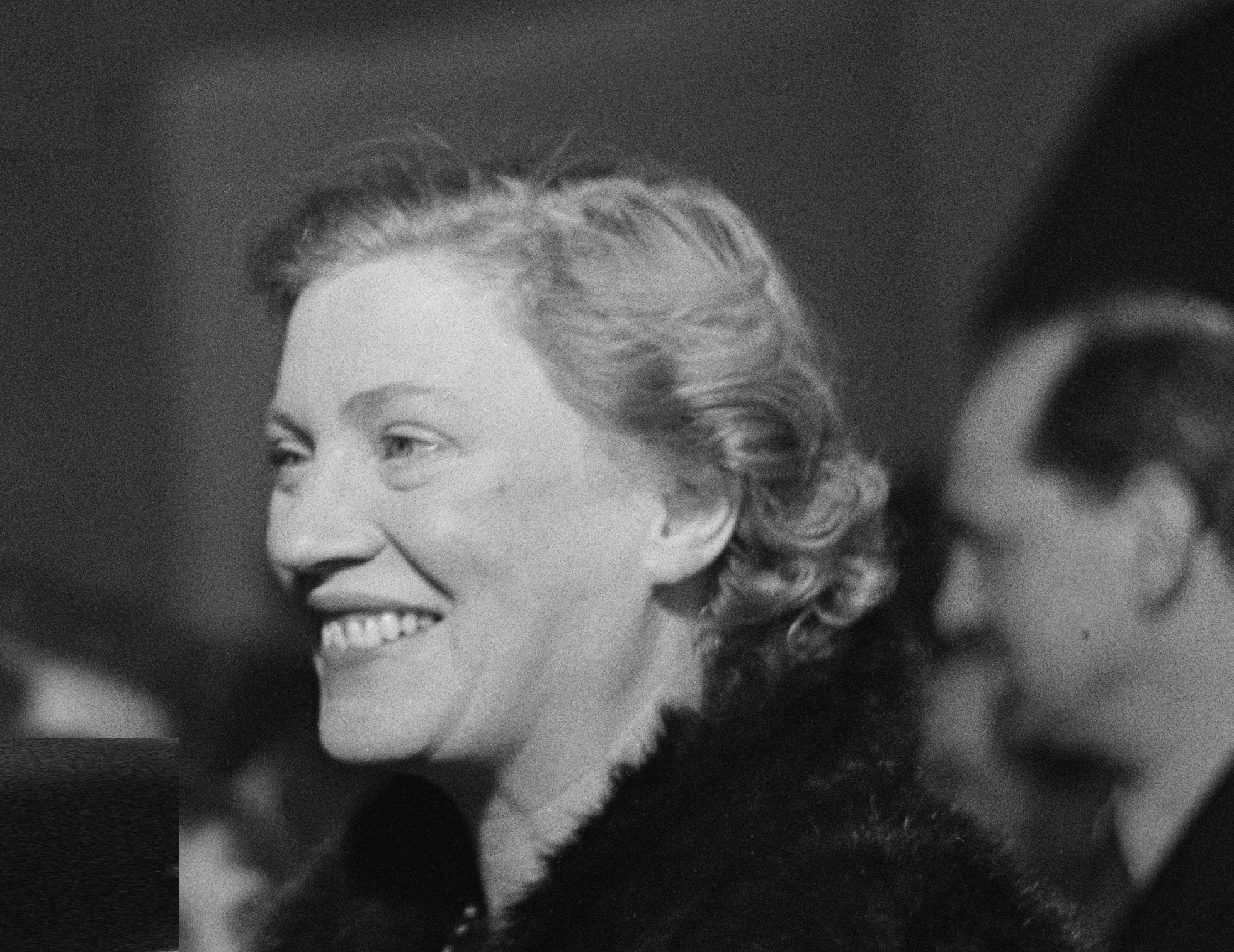 Haywood Magee , Getty Images
Haywood Magee , Getty Images
8. She Was “Ruthless”
Lee Miller looked like a Hitchcock Blonde, but she was no pampered starlet. Even then, she had a steely determination that would see her through some of the most hideous moments of the 20th century. One of her contemporaries described her as, “a remarkable woman, completely unsentimental, and sometimes ruthless”.
So instead of pouting about this turn of events, Miller came up with an ingenious solution.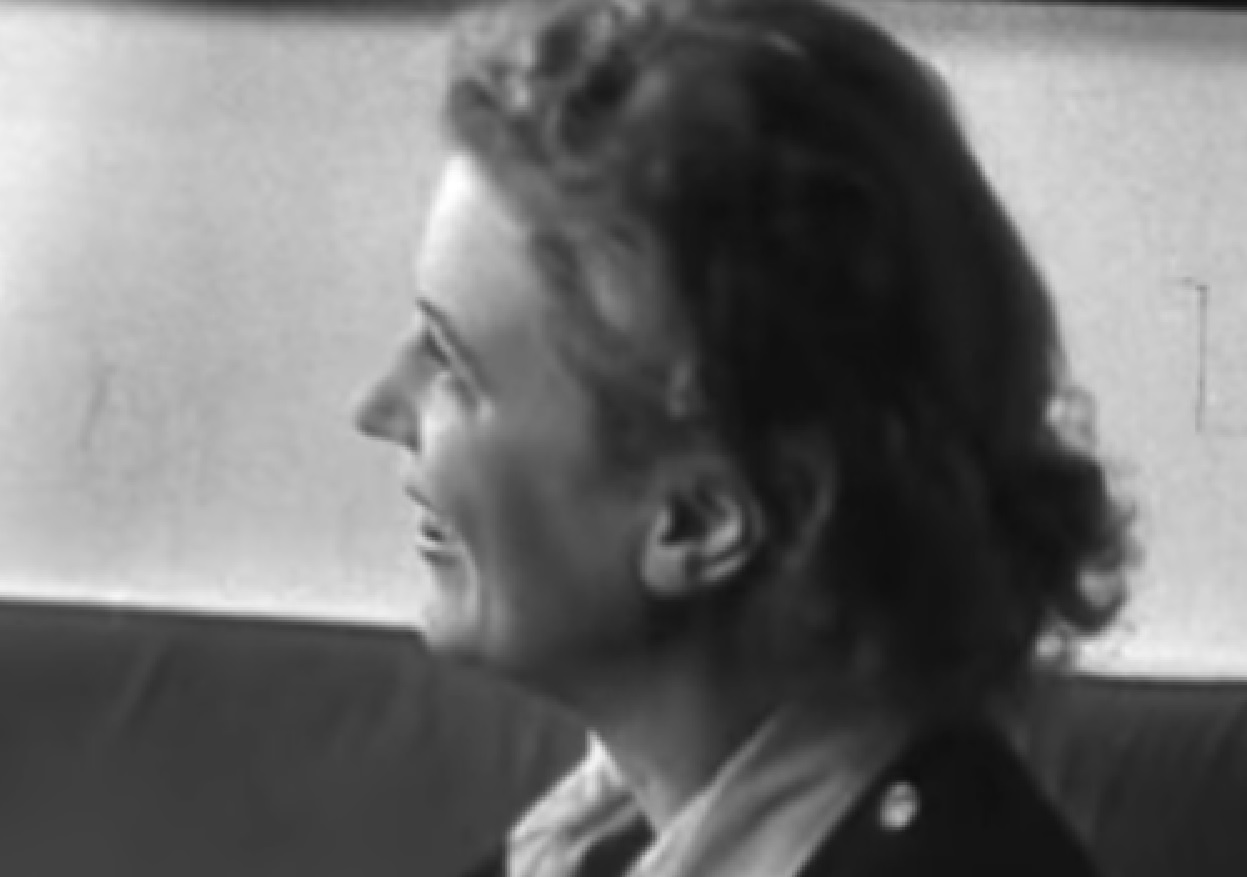 Artemis Film, Lee Miller: Through the Mirror (1955)
Artemis Film, Lee Miller: Through the Mirror (1955)
9. She Wanted To Be In Control
If the Kotex debacle taught Miller anything, it was that, as she later put it, “I’d rather take a picture than be in one”. Behind the lens, she could have all the control she lacked as model, and she already knew a fair amount about photography thanks to her (creepy) father.
With photography in mind, she could have worked her way up slowly in the field. But that wasn’t Lee Miller’s style. Instead, she got herself into an infamous ego battle.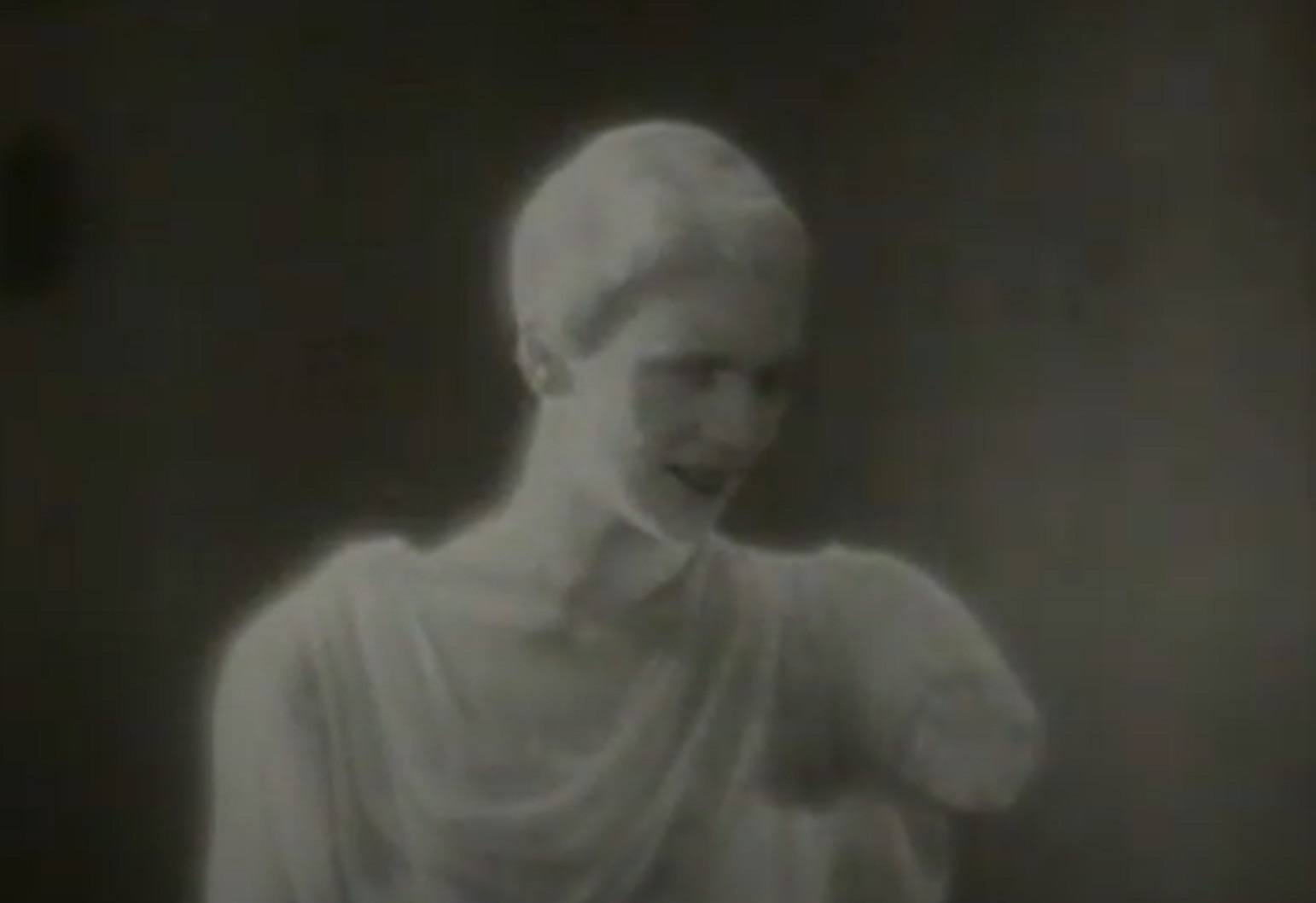 Artemis Film, Lee Miller: Through the Mirror (1955)
Artemis Film, Lee Miller: Through the Mirror (1955)
10. She Aimed High
Once Miller decided she wanted to pursue photography, she went right to the avant-garde: She knew she needed to study with the age’s great master, Man Ray. A Surrealist artist with a libertine lifestyle, Ray was the figure to know around Paris. So of course, Miller flew right back to the French capital to find him. She made an…interesting impression.
11. She Was Shockingly Bold
Once in Paris, the confident and direct Miller managed to track down Man Ray to his usual Parisian café, Le Bateau Ivre, where she reportedly asked him to take her on as a student. He informed her he didn’t take students, and besides, he was leaving soon for a holiday in Biarritz. Miller’s reply stunned the artist. Not taking no for an answer, she simply said, “So am I”.
It was the beginning of something neither of them was prepared for.
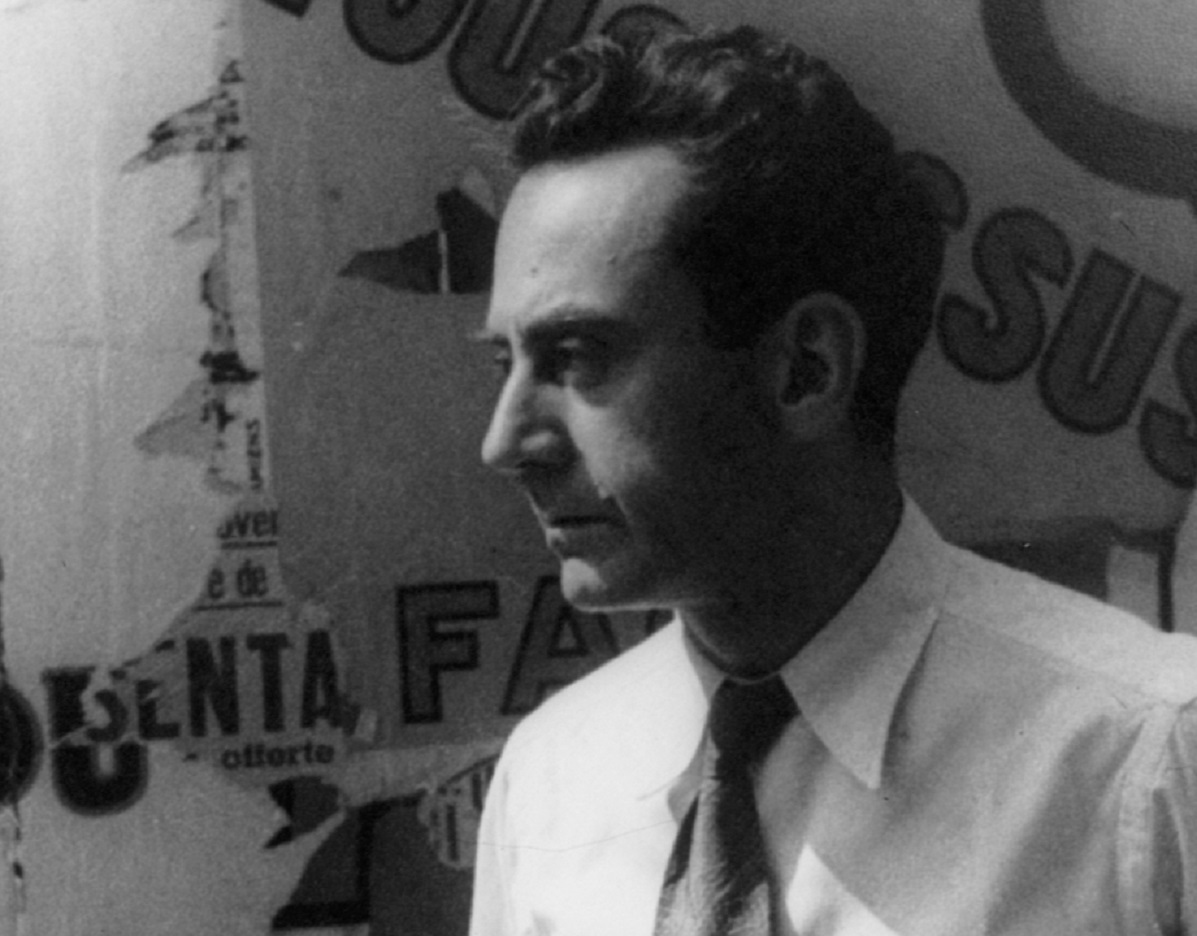 Carl Van Vechten, Wikimedia Commons
Carl Van Vechten, Wikimedia Commons
12. She Had A Messed-Up Relationship
Man Ray was 17 years Miller’s senior, and at first their relationship fell into a classic teacher/student mode, layered over with an artist/muse relationship. Ray taught Miller, but he also took photographs of her immaculate beauty constantly and in endless variations.
With this kind of obsession at play, however, it soon developed into something more. They fell into a passionate, all-consuming romance, both relishing the other’s intelligence and physical beauty. But that was far from all. Judd Gunderson, Los Angeles Times, CC BY 4.0, Wikimedia Commons
Judd Gunderson, Los Angeles Times, CC BY 4.0, Wikimedia Commons
13. She Surprised Everyone
Muse though she was to Man Ray, Miller was never anybody’s plaything. During this time, she acted as Ray’s equal, creating her own work from found objects and exploring her own interest in Surrealism. In fact, after Ray gave her a Kodak camera in 1930, even experts had a hard time telling their work apart, and their attributions are often mixed.
Now, if Miller had stayed his equal, maybe Ray could have handled it. A much darker fate was in store.
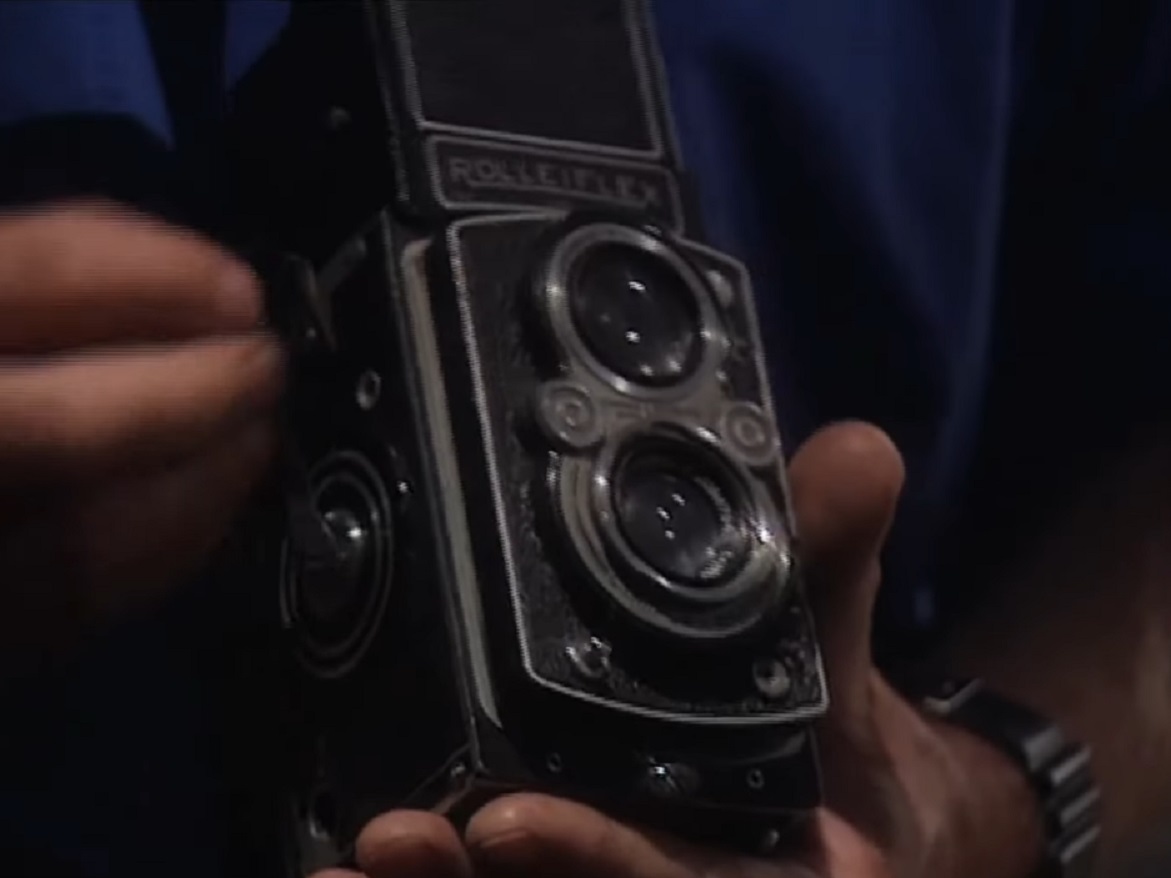 Artemis Film, Lee Miller: Through the Mirror (1955)
Artemis Film, Lee Miller: Through the Mirror (1955)
14. She Became Competition
As time wore on, Miller didn’t just fill out Ray’s gaps. She made a game-changing discovery. Many believe it was Miller, not Man Ray, who discovered their now-iconic use of “solarisation”— which makes the photographic subject appear almost ghostly—in their photography. Apparently, Miller discovered it after accidentally turning the darkroom light on too early.
Unfortunately, Ray was not generous with Miller’s new experimental talents.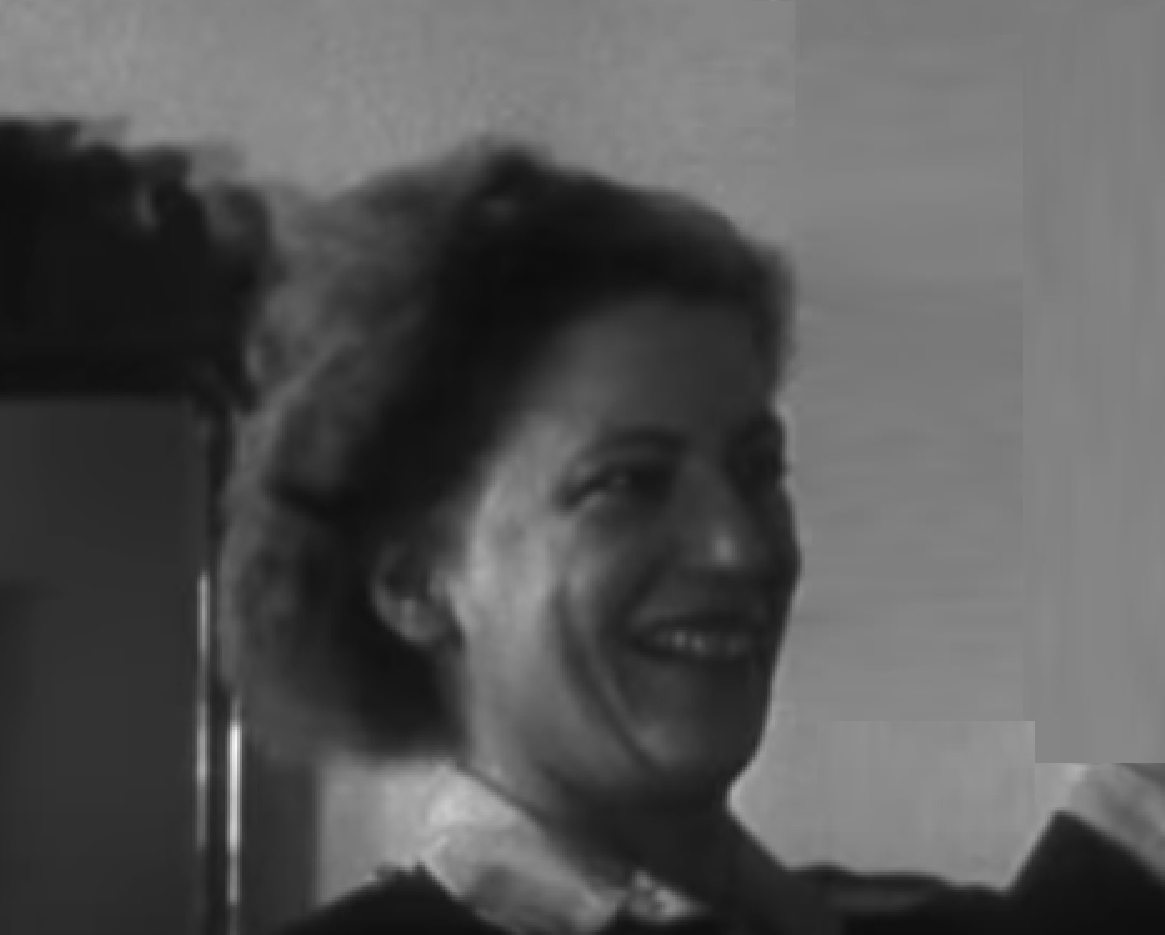 Artemis Film, Lee Miller: Through the Mirror (1955)
Artemis Film, Lee Miller: Through the Mirror (1955)
15. Her Lover Got Violent
According to one of Miller’s biographers, Man Ray “wanted to control her”. For all that his circle was free and easy with love and romance, they weren’t so understanding and equal when it came to professional accomplishments.
When Miller once took out a photograph Ray had discarded—which was an image of herself—and made her own work out of it, Ray became so furious that he slashed the image of Miller’s neck with a razor. Unfortunately, that was the least of the creepy things he would do.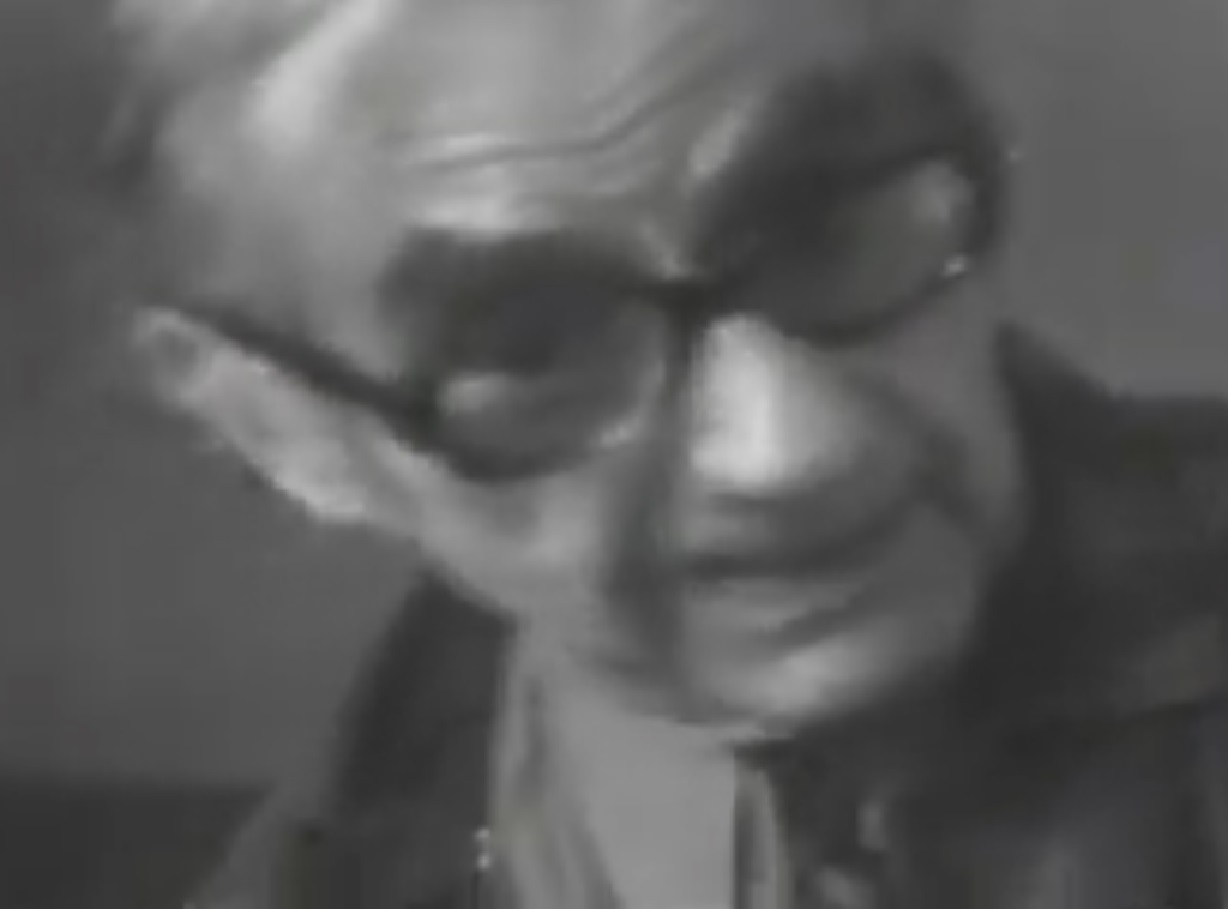 American Masters Pictures,Man Ray- Prophet Of The Avant-Garde (1997)
American Masters Pictures,Man Ray- Prophet Of The Avant-Garde (1997)
16. Her Father Was Still Skin-Crawling
In 1930, Lee’s father Theodore decided to visit her while she was in Paris working with Man Ray. But this was no ordinary parental visit. As he had done since she was a child, Theodore took this opportunity to take more unclothed photos of his now 23-year-old daughter, this time in a hotel bathtub of the suite he insisted she share with him.
Then, when Theodore met Man Ray, the inappropriateness sky-rocketed.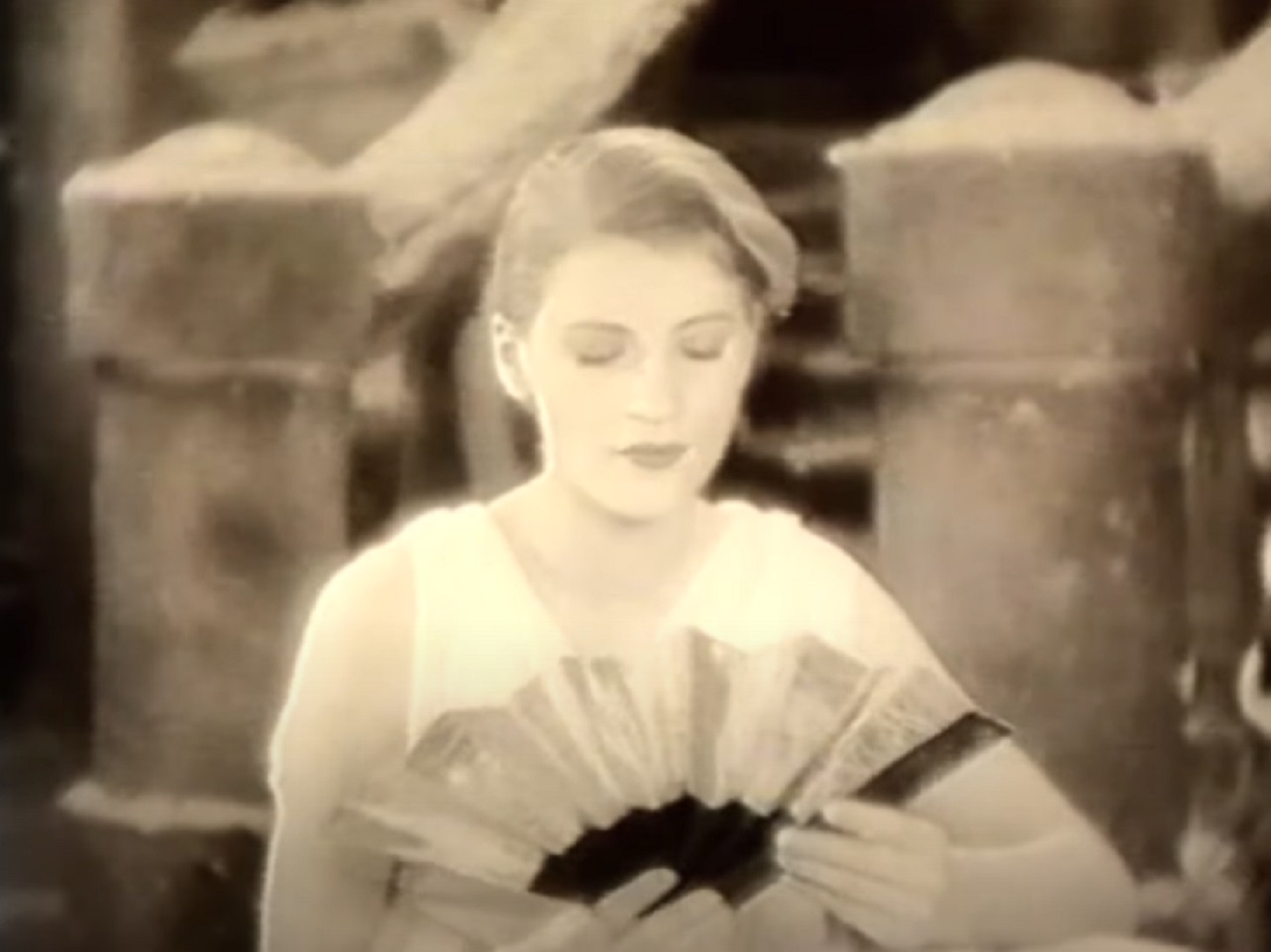 Artemis Film, Lee Miller: Through the Mirror (1955)
Artemis Film, Lee Miller: Through the Mirror (1955)
17. Her Lover And Dad Took Advantage
Man Ray and Theodore got along very well indeed, but their artistic output was utterly disturbing. At one point, Man Ray took photographs of the adult Lee curled up in her father’s lap, wearing a childish printed dress. In another, the two men photographed Miller—you guessed it—unclothed in a bed with three other women.
This did not have a happy ending.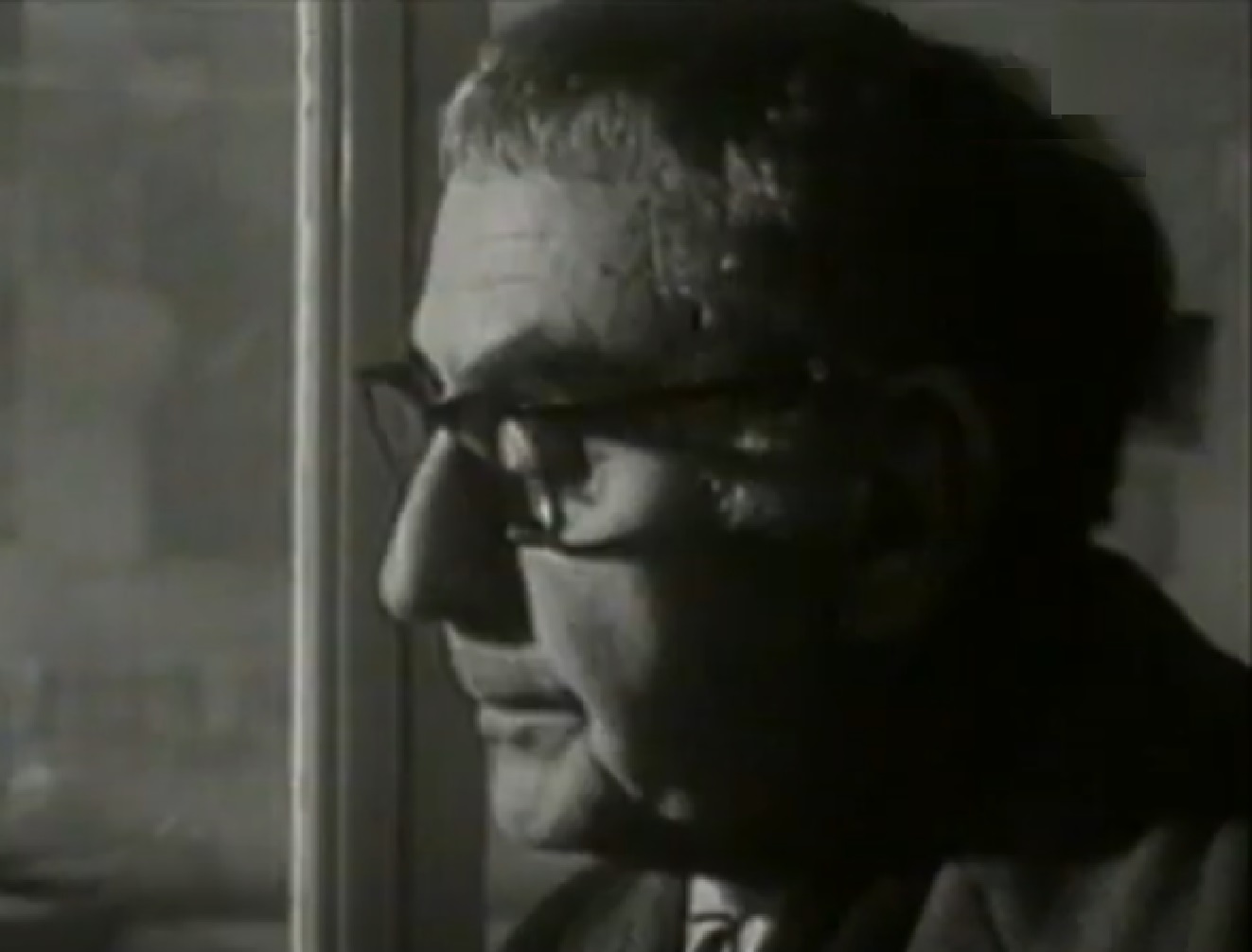
18. She Made A Momentous Decision
At some point, whether it was his creepy attentions toward her or his unwillingness to let her become her own artist, Lee Miller had enough of Man Ray. Although he was still desperately in love with her, she left him after three years together and returned to New York to make her own way in the world once more. Ray’s reaction was bone-chilling.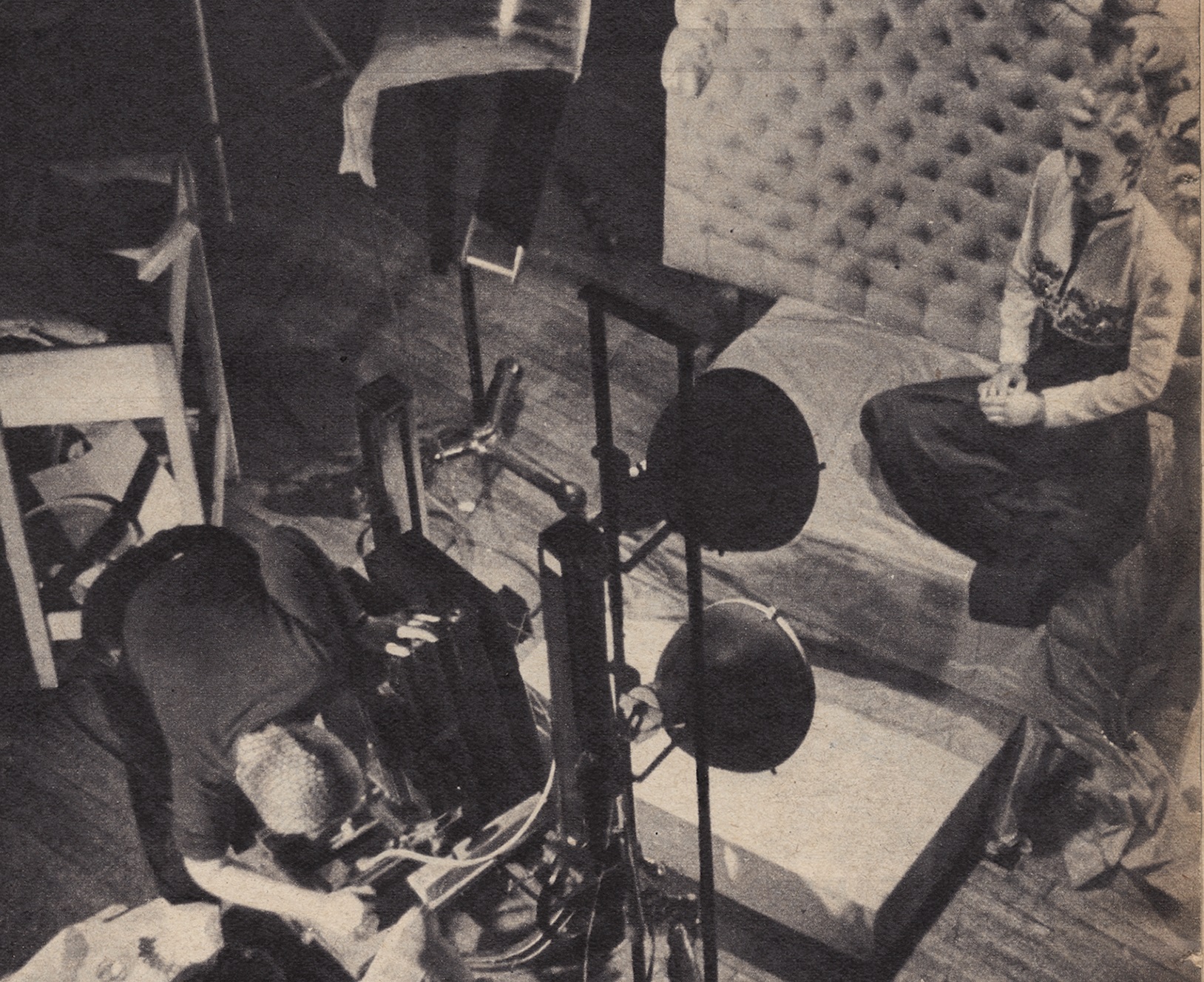 Zoltan Glass, Getty Images - 1940
Zoltan Glass, Getty Images - 1940
19. He Was Vengeful
Breakups have often produced incredible art, but Man Ray’s agonized output after the collapse of his relationship with Miller was deeply violent and upsetting. In one, Indestructible Object, a drawing of Miller’s eye sits atop the pendulum of a metronome, with the instructions to watch it “as long as you could stand it”—and then destroy it with a hammer.
But Ray was just getting started.
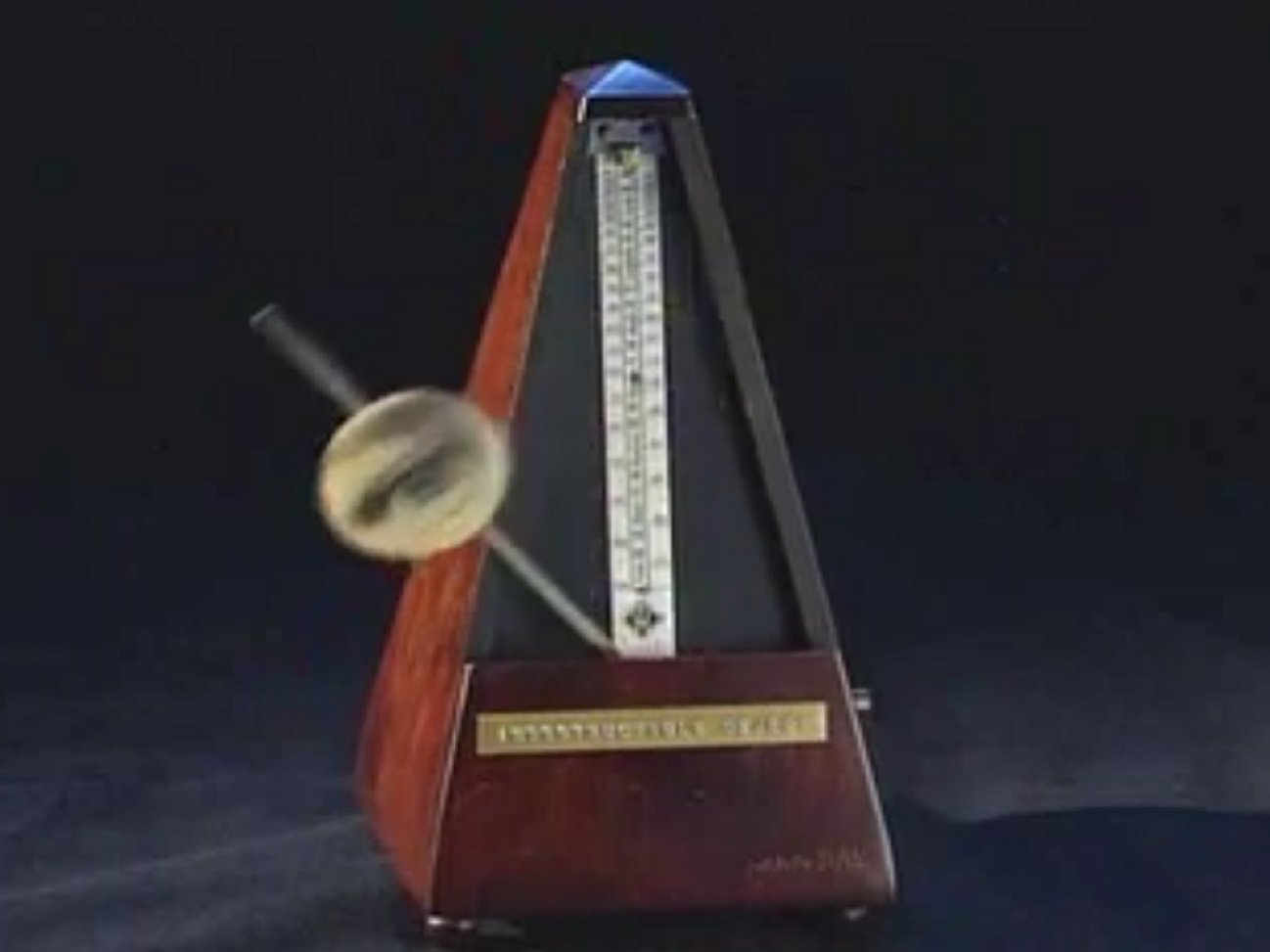 American Masters Pictures, Man Ray- Prophet of the Avant-Garde (1997)
American Masters Pictures, Man Ray- Prophet of the Avant-Garde (1997)
20. He Broke Down
For nearly two years, Ray went into a near breakdown after Miller dumped him. And, nearly every day for those two years, he worked on one painting every morning to help himself get over the loss—the work that would end up being his famous painting The Lovers. As it happens, it is an enormous image of what are unmistakably Lee Miller’s unforgettable lips.
Yet if Ray couldn’t move on…Miller sure did.
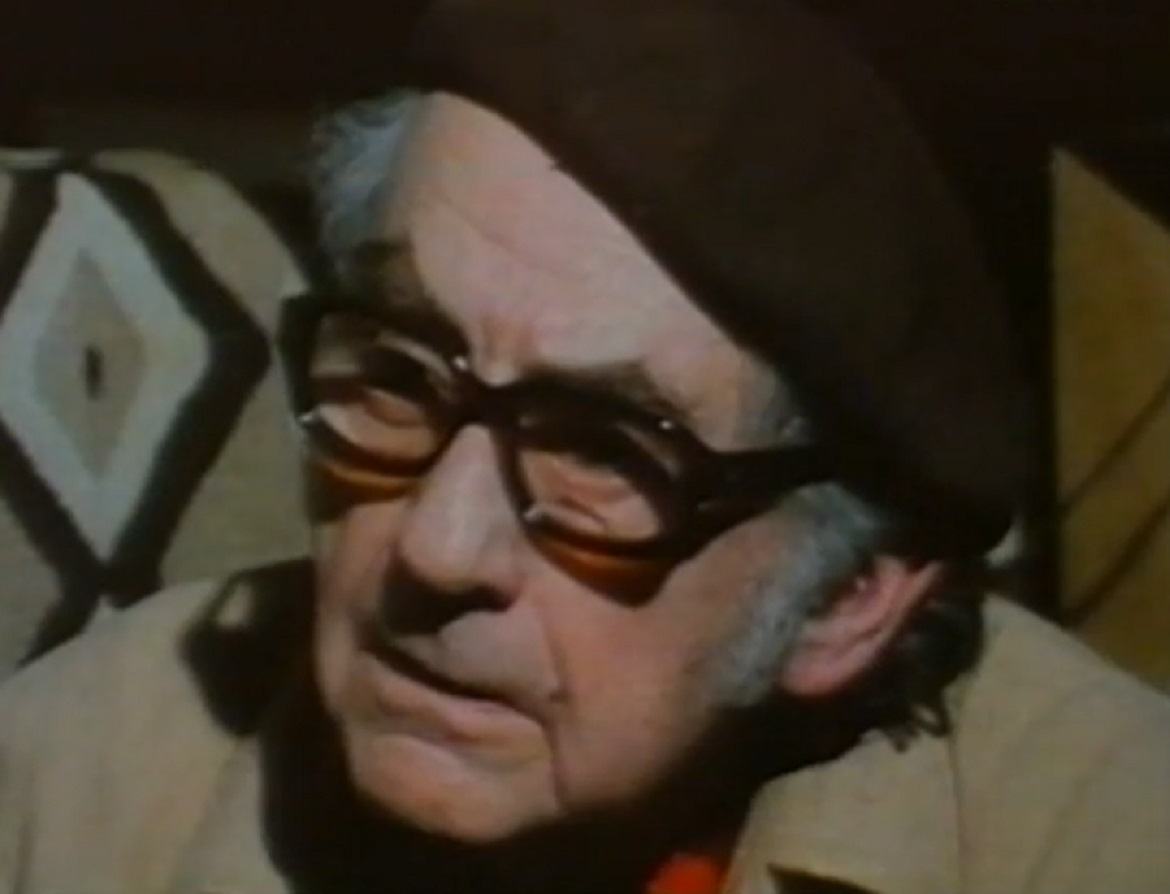 American Masters Pictures,Man Ray- Prophet of the Avant-Garde (1997)
American Masters Pictures,Man Ray- Prophet of the Avant-Garde (1997)
21. She Made It On Her Own
While back in New York, Miller went about setting up her own photography studio near Radio City Music Hall, and quickly won herself illustrious commercial clients like Elizabeth Arden and Saks Fifth Avenue. It was here she came face-to-face with the next chapter of her life.
In this milieu, she met the Egyptian businessman Aziz Eloui Bey, who was in town for a railroad deal. It kicked off a whirlwind.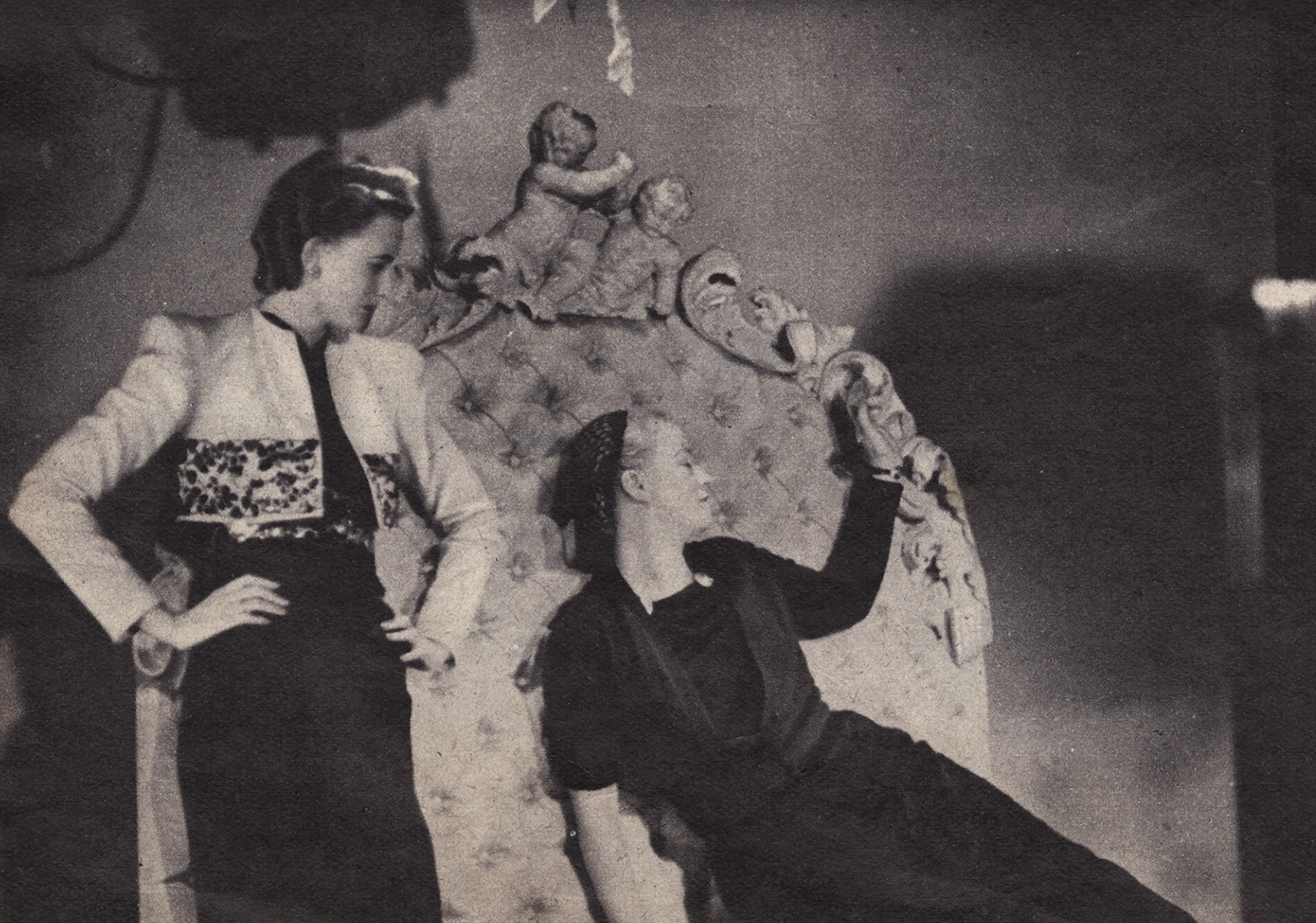 Zoltan Glass, Getty Images - 1940
Zoltan Glass, Getty Images - 1940
22. She Gave Up Everything On A Whim
With Man Ray, Miller had always seemed careful not to give too much of herself. But Aziz Eloui Bey was another matter entirely. In 1934, she married him—and gave up an incredibly amount to do it. Following him to Egypt, Miller had to drop her burgeoning but successful studio in New York, and she stopped working as a professional photographer entirely.
Sadly, she was about to learn a cruel lesson.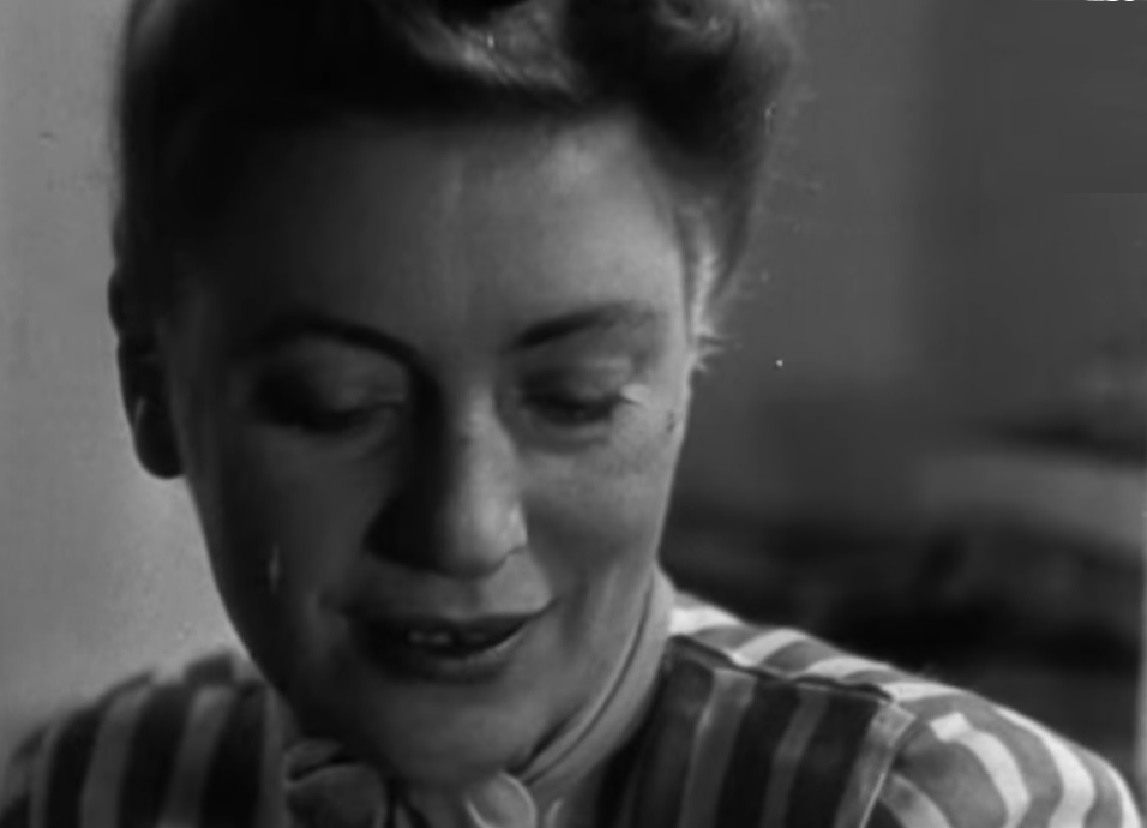 Artemis Film, Lee Miller: Through the Mirror (1955)
Artemis Film, Lee Miller: Through the Mirror (1955)
23. She Made A Big Mistake
For the first part of her marriage, Miller’s desert surroundings were enough to keep her intrigued and busy. She took several photographs there, including Portrait of Space, that many consider her best work as an artist. Soon enough, however, Miller found herself pining for Paris—and not pining for her husband.
Eventually, Miller realized she’d rushed headlong into a huge mistake. She reacted with characteristic ruthlessness.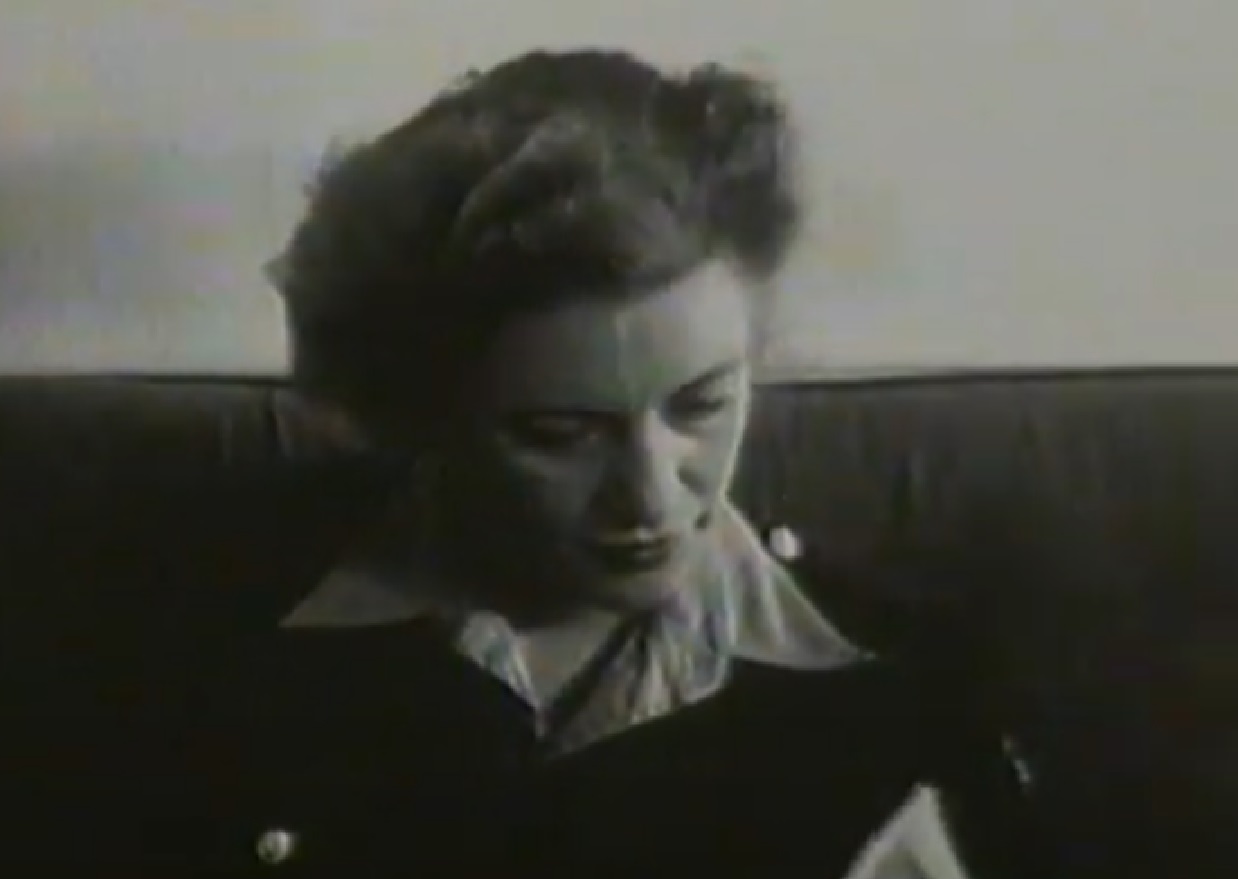 Artemis Film, Lee Miller: Through the Mirror (1955)
Artemis Film, Lee Miller: Through the Mirror (1955)
24. She Left Abruptly
Leaving was always easy for Lee Miller. She effectively ended her marriage in 1937, after just three years of trying to make it work with her husband. She would cite boredom with Cairo as part of her motivation for leaving—but the way things worked out, there may have been a different, more scandalous reason for her split.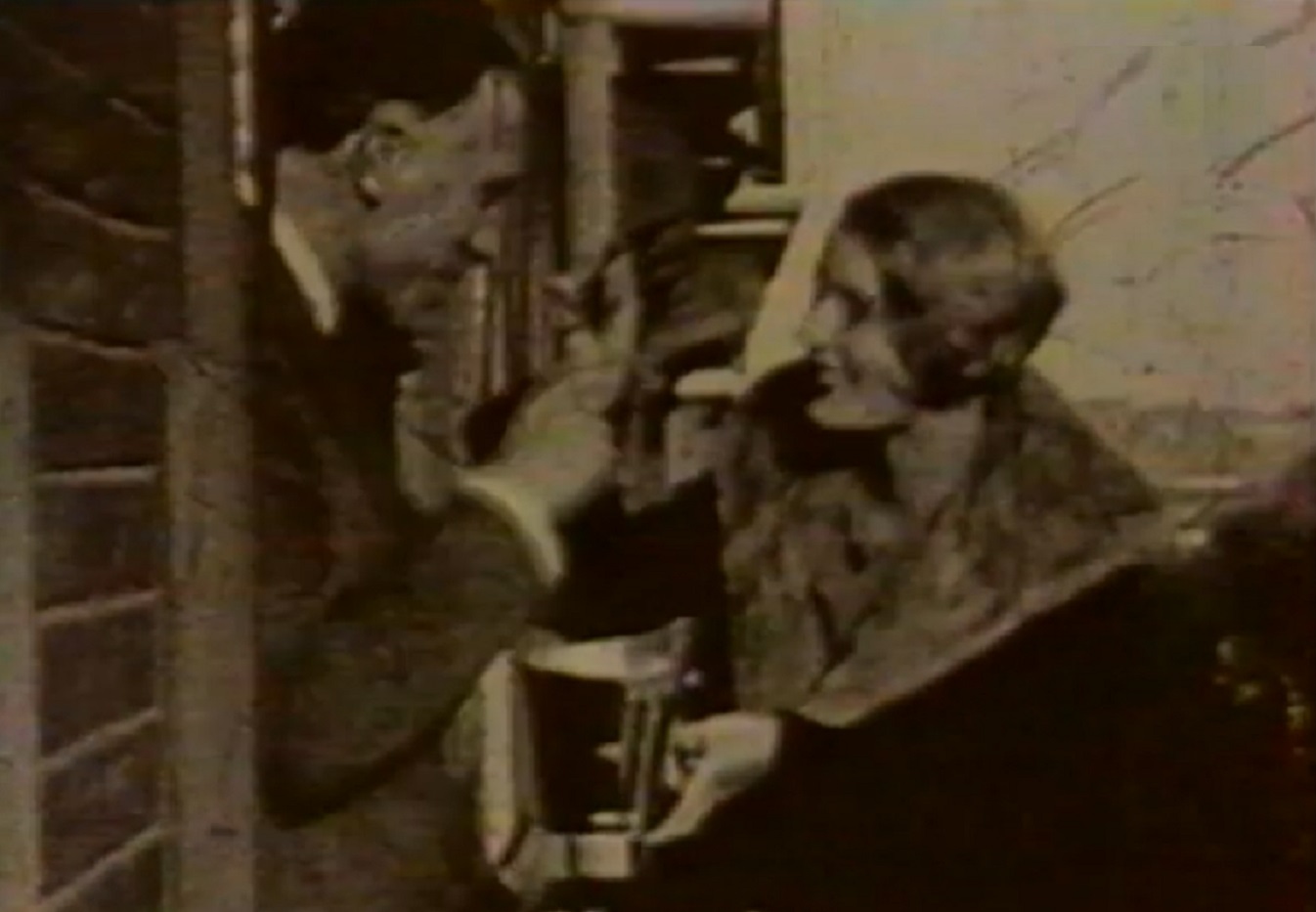 Artemis Film, Lee Miller: Through the Mirror (1955)
Artemis Film, Lee Miller: Through the Mirror (1955)
25. She Met A Rakish Man
Right around this time, Miller met Roland Penrose, another surrealist artist, while on a trip over to Paris. Delicate-looking and poetic, Penrose also had a reputation for near-constant womanizing. Indeed, when they first met, Penrose was just coming off his own failed marriage, and was drowning his sorrows in a new lover.
Nonetheless, he and Miller clearly had a spark. But their road to igniting it was unconventional.
 Josepclopesbosc, CC BY-SA 4.0, Wikimedia Commons
Josepclopesbosc, CC BY-SA 4.0, Wikimedia Commons
26. He Went After Her
Penrose wasn’t looking for a lock-down situation, and he appears to have avoided fully pulling the trigger with Miller, especially as she was still living in Cairo. That is, until he was talking to yet another of his lovers, the socialite Peggy Guggenheim.
Penrose let slip to her that he loved an American woman in Egypt. Guggenheim, ever the worldly woman, simply told him to “go to Egypt to get his ladylove”. He took her advice, and he and Miller became a quick item, with Miller moving to live with him at his home base in London. Yet this was not happily ever after.
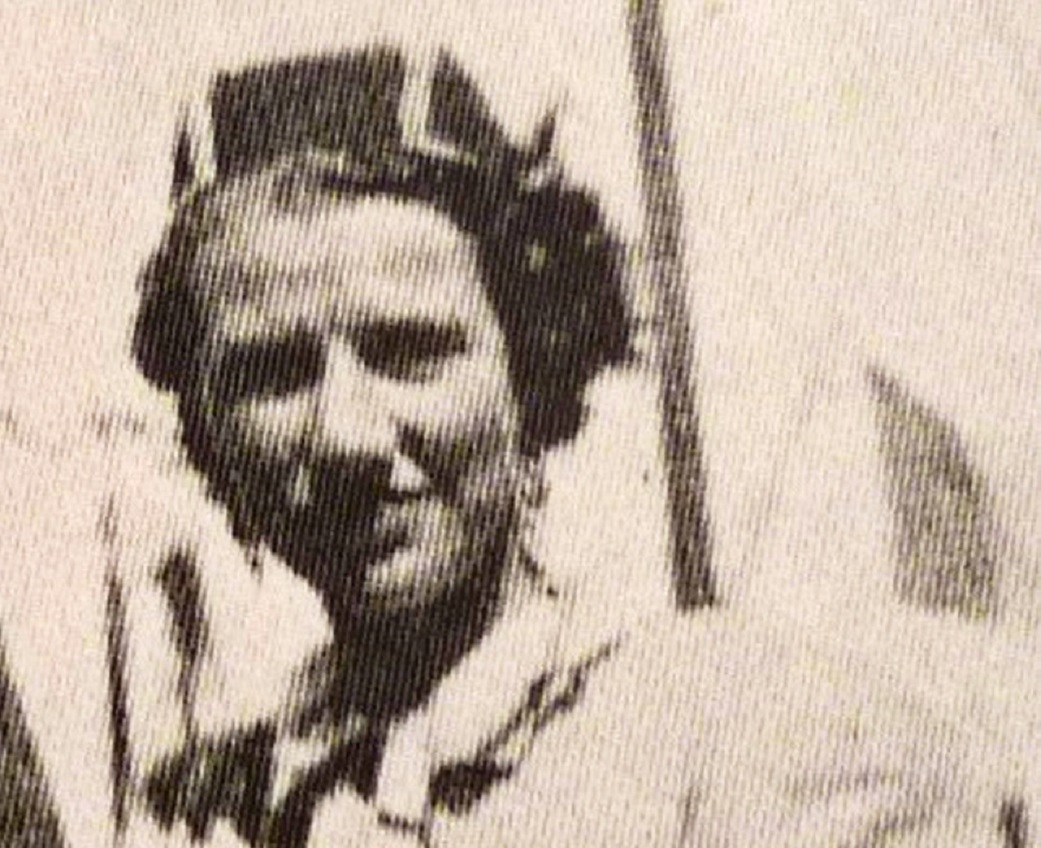 Archives familiales, CC BY-SA 4.0, Wikimedia Commons
Archives familiales, CC BY-SA 4.0, Wikimedia Commons
27. She Was Born In A Bad Time
The same year that Penrose and Miller finally got together, devastating news hit Europe. WWII was now officially in swing, with the Axis powers tearing through territories faster than governments could scramble for defense. In fact, when the Germans began infamously attacking London in the Blitz, Miller was right in the middle. Her reaction stunned her loved ones. Leonard Bentley, Flickr
Leonard Bentley, Flickr
28. Her Family Begged Her
As news of the bombings hit America, all of Miller’s family and friends stateside wrote to her, desperately begging her to come back home to the relative safety of the USA. The headstrong Miller ignored them all, staying put right in the middle of the fighting. She did more than that, too. One day, she met a very important person with a seemingly unhinged request.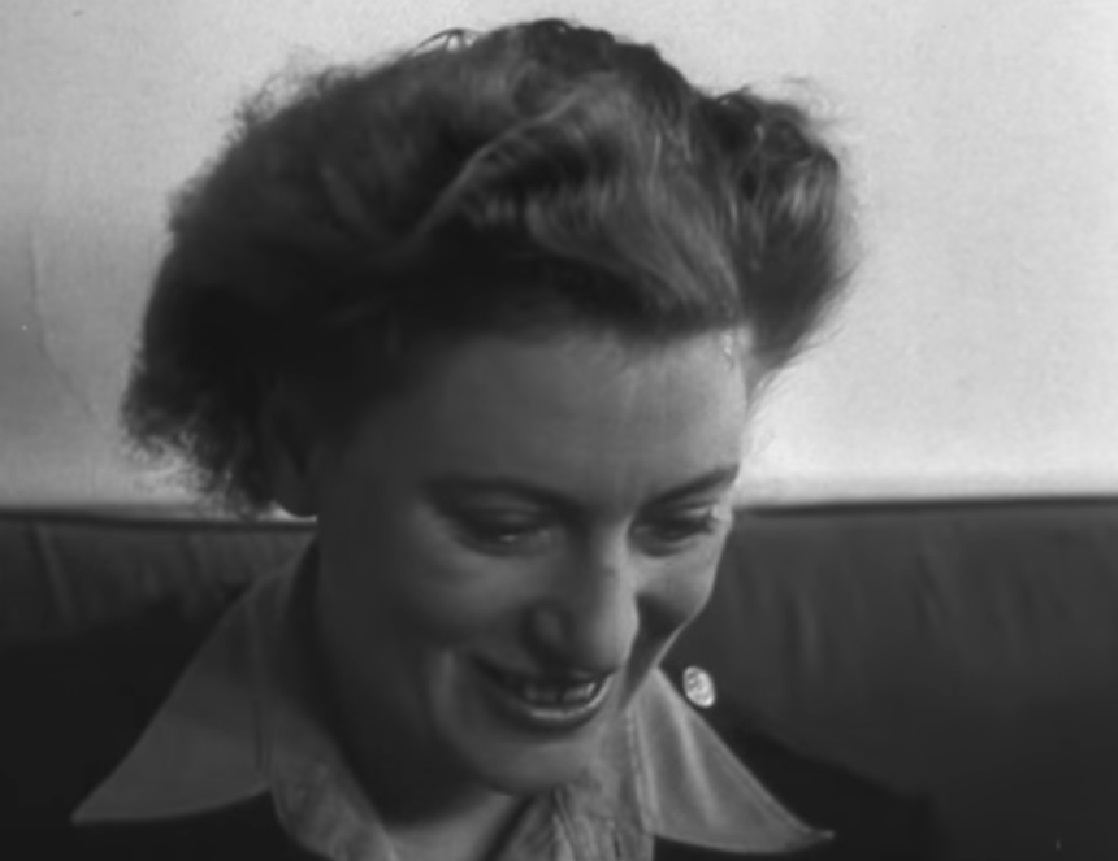 Artemis Film, Lee Miller: Through the Mirror (1955)
Artemis Film, Lee Miller: Through the Mirror (1955)
29. She Came Up With A Bizarre Idea
During her time in Europe, Miller had crossed paths Audrey Withers, the current editor of British Vogue. One day, Miller confided in Withers her intentions of becoming a correspondent assigned to document various conflicts. So, she asked, would the fashion magazine like to sponsor and publish what were sure to be distressing photographs?
To Withers’ credit, she agreed. Miller, stubborn and confident, had no idea what she was getting into.
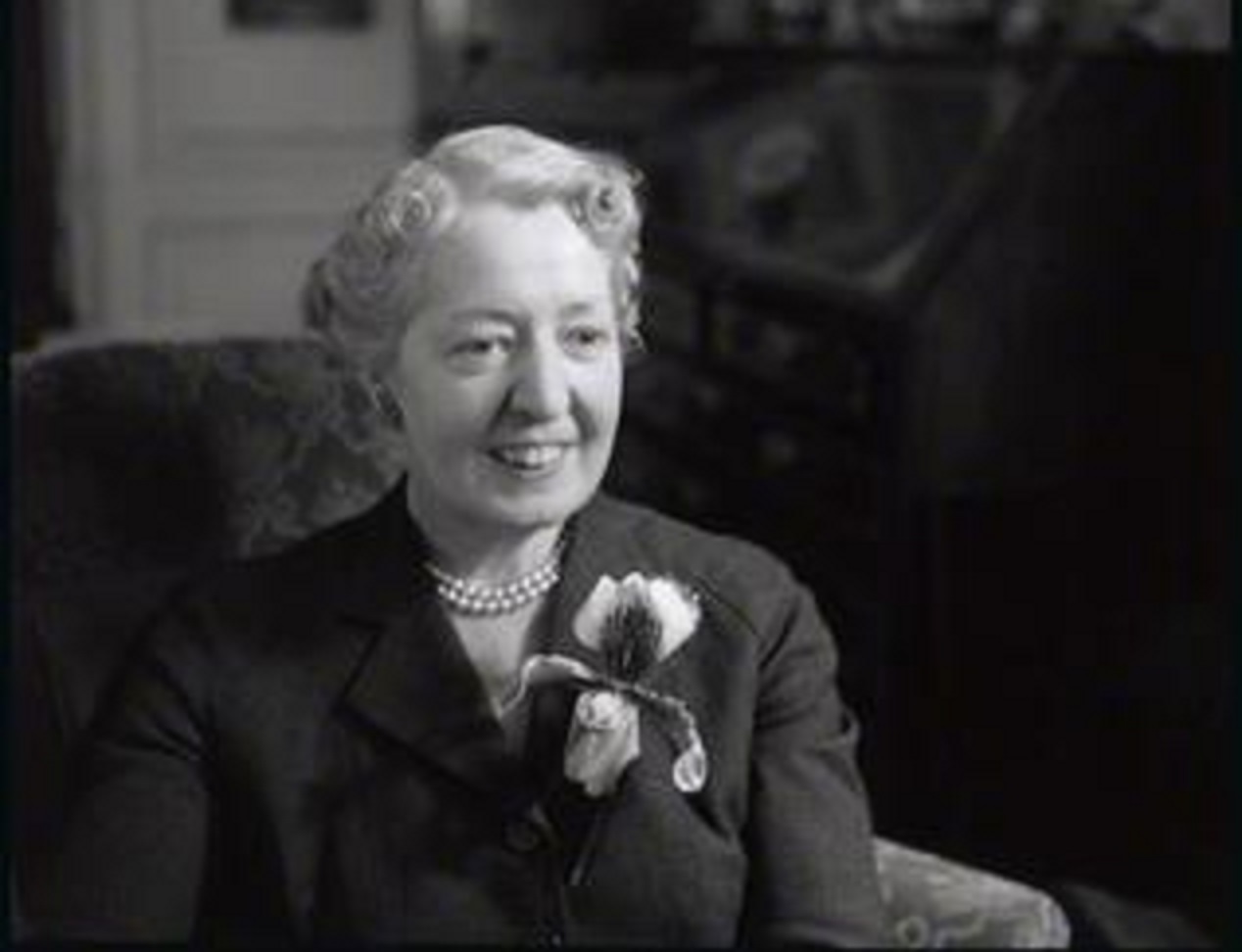 National Portrait Gallery, Wikimedia commons
National Portrait Gallery, Wikimedia commons
30. She Was In The Thick Of It
Over the next span of years, Miller witnessed untold horrors. After becoming an official correspondent for Conde Nast publications—going full circle from her modeling days—she started by documenting the harrowing destructions and mortality rates of the Blitz on the ground in London. In 1944, she set her sights on a bigger, more dangerous goal.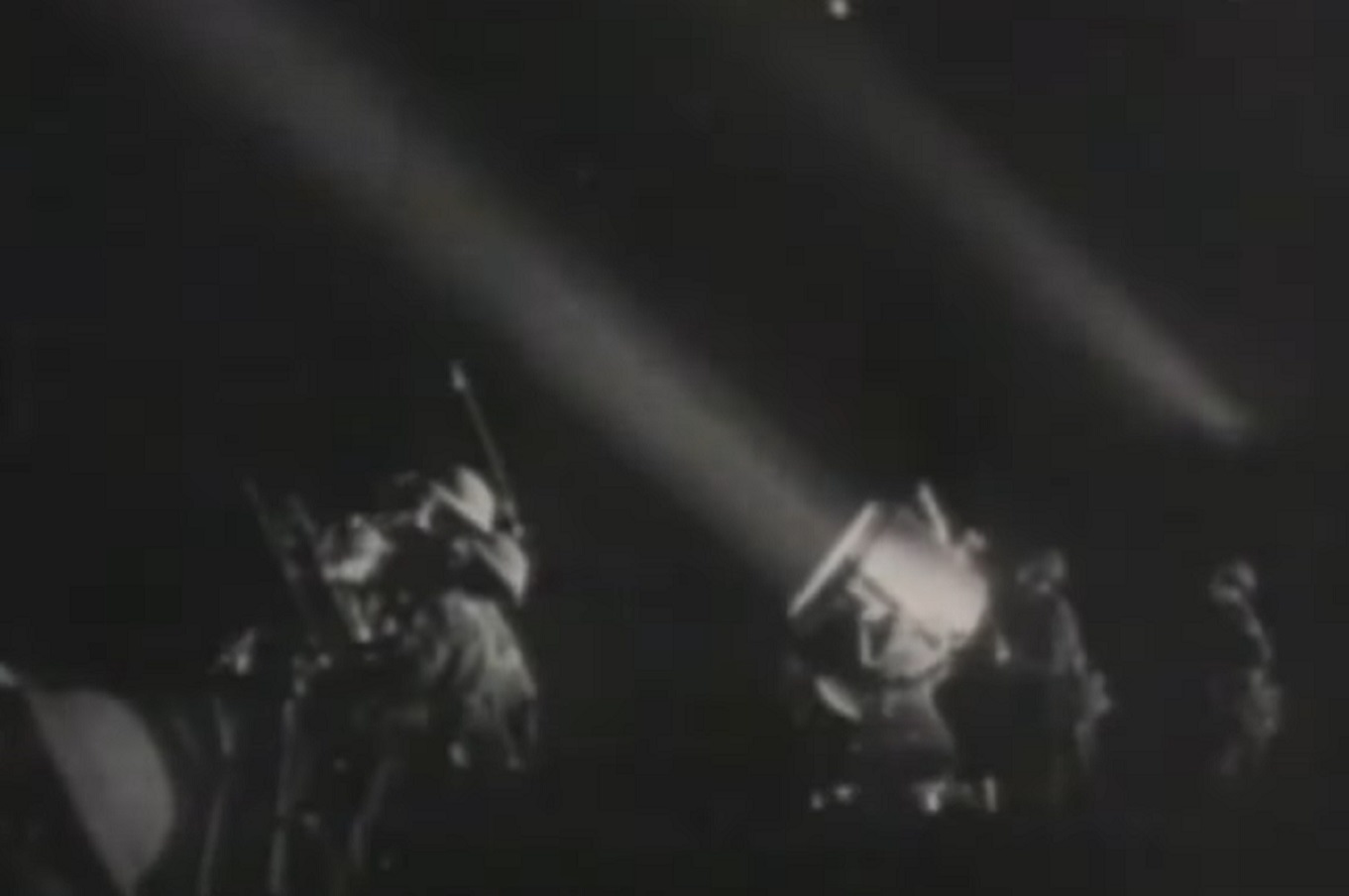 Artemis Film, Lee Miller: Through the Mirror (1955)
Artemis Film, Lee Miller: Through the Mirror (1955)
31. She Was Addicted To Danger
Just covering the Blitz wasn’t enough for Miller, whose nerves of steel and unsentimental perspective served her well in a violent age. Next, she began working with Life correspondent David E Scherman near the front lines of WWII. Not even a month after D-Day, she was in France, and followed the Allied invasion all the way to the liberation of Paris.
But her focus on her professional life hurt her personally.
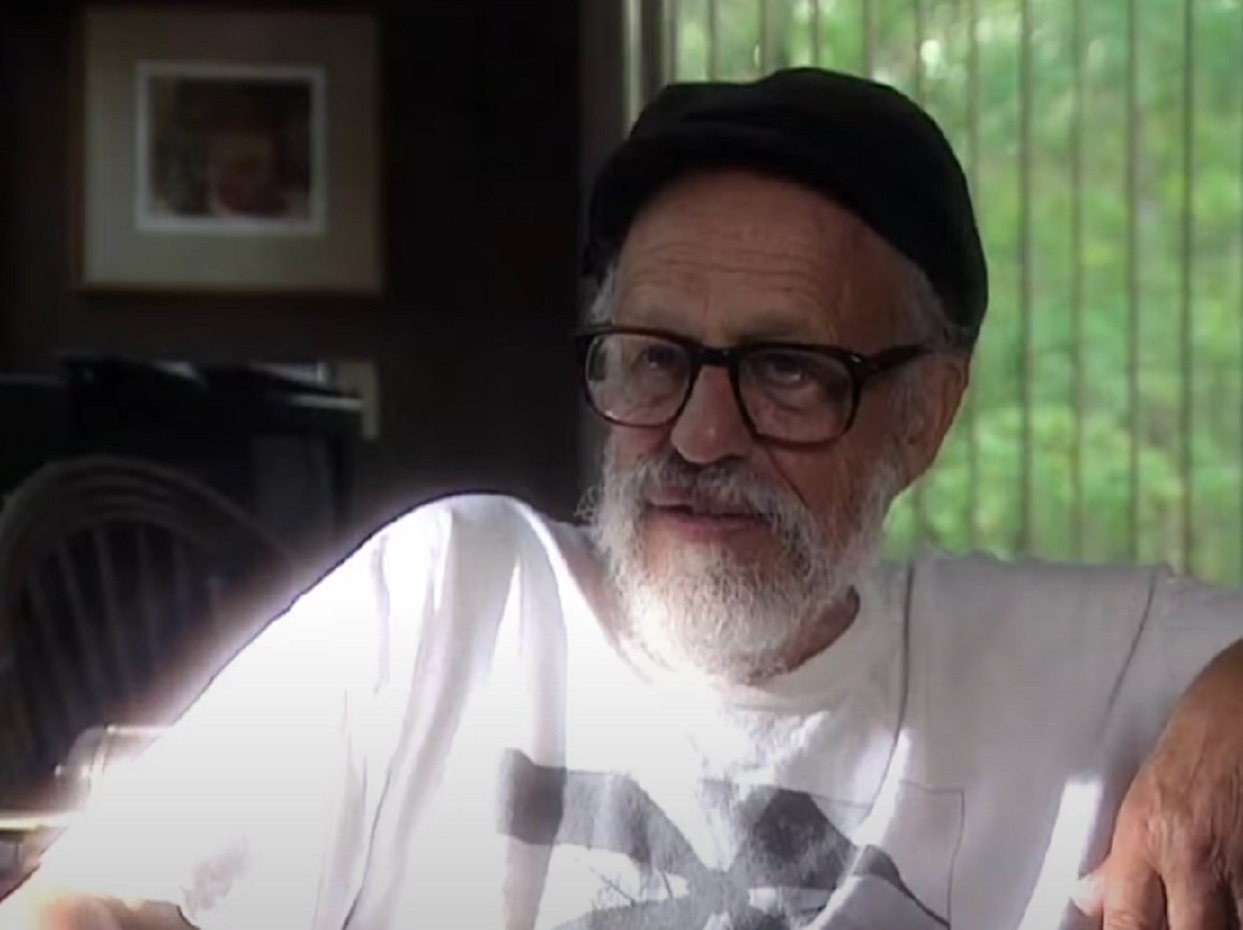 Artemis Film, Lee Miller: Through the Mirror (1955)
Artemis Film, Lee Miller: Through the Mirror (1955)
32. Her Lover Betrayed Her
Throughout her time as a correspondent, Miller tried to keep her relationship with Roland Penrose alive. It was no easy feat, especially with Penrose’s wandering eye. In 1945, he struck up an affair with the botanist Gigi Compton while Miller was off photographing the devastation across continental Europe. His next move was even more questionable.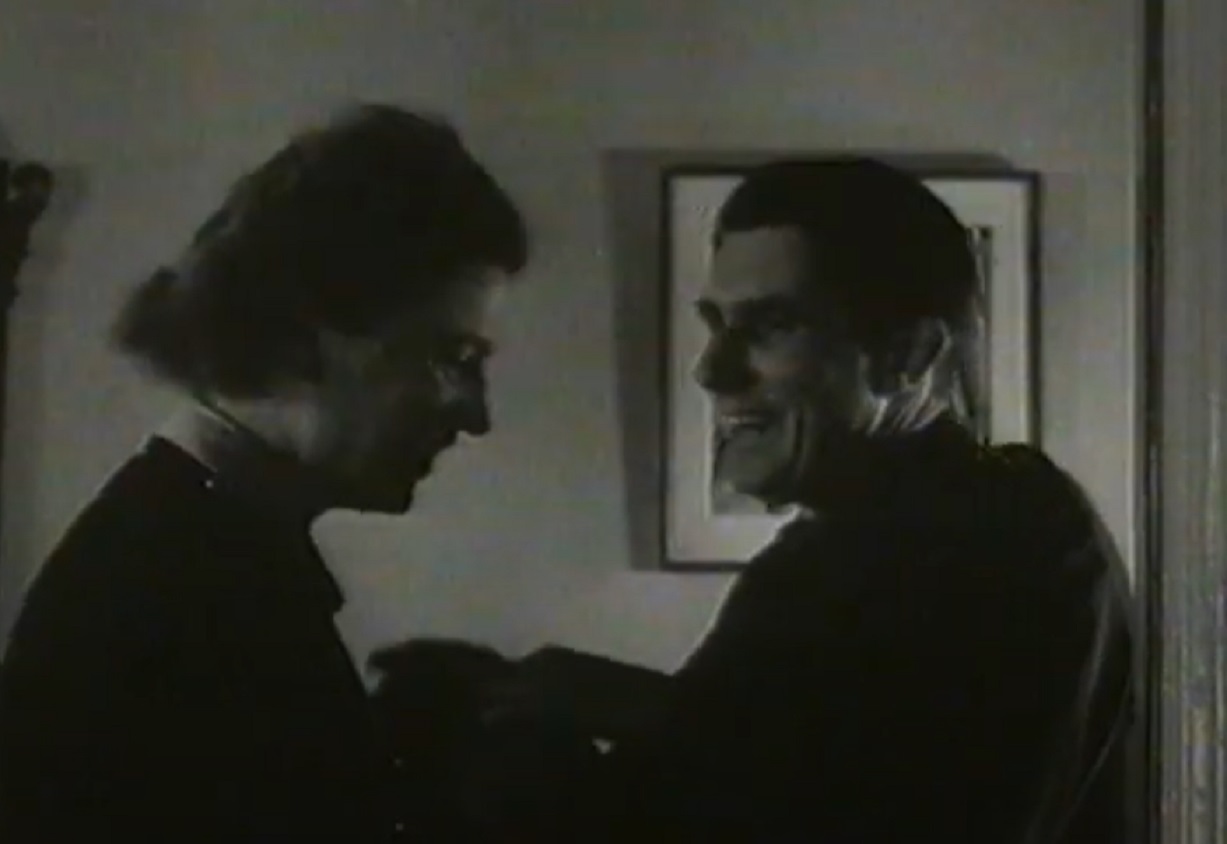 Artemis Film, Lee Miller: Through the Mirror (1955)
Artemis Film, Lee Miller: Through the Mirror (1955)
33. He Exposed Her
For his own part, Penrose spent WWII applying his artistic skills to teach camouflage to future combatants at a training school. One part of his teachings was shocking. Reportedly, he loved to disrupt his audience in the middle of his lecture by showing a color photograph of Miller lying on a lawn, bared except for a camouflage net.
Unsurprisingly, people objected to this “technique,” at which point Penrose had an even creepier comeback.
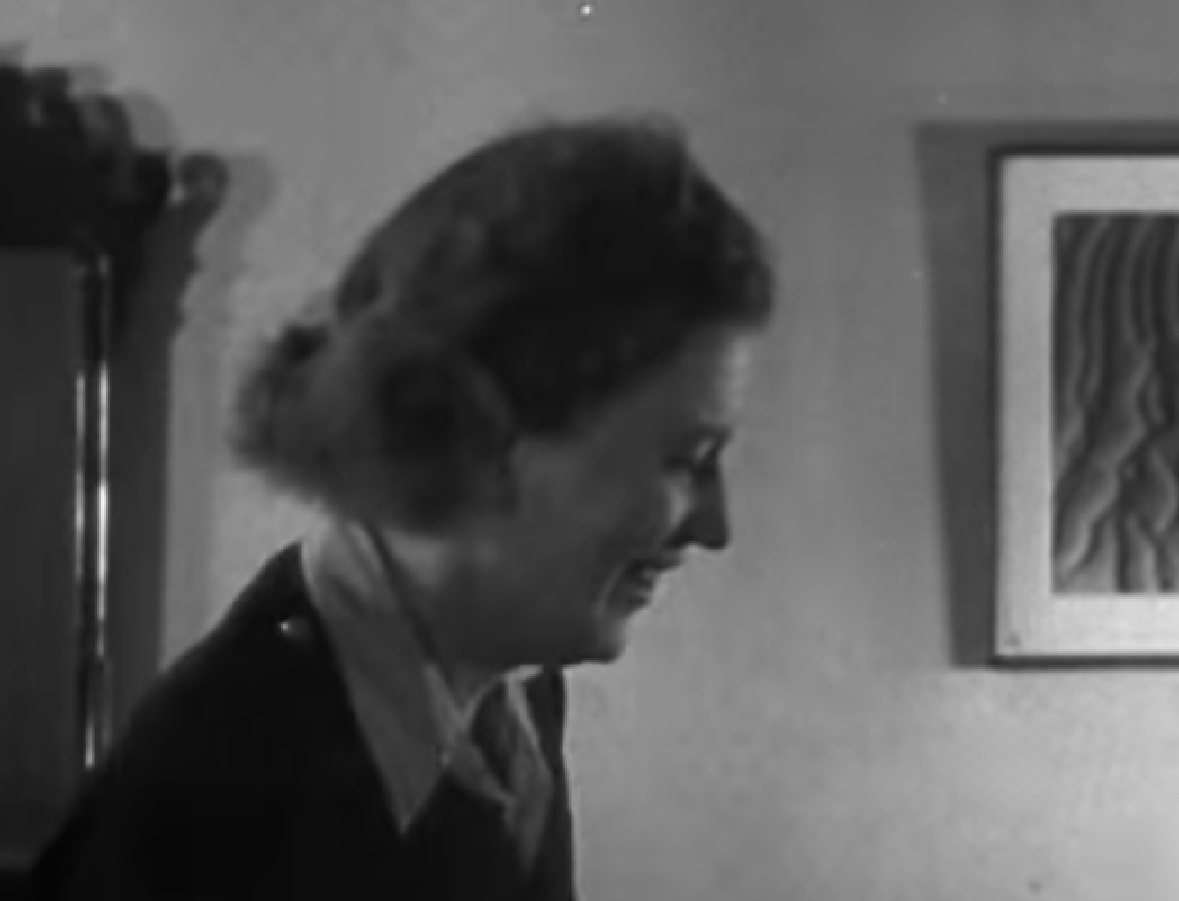 Artemis Film, Lee Miller: Through the Mirror (1955)
Artemis Film, Lee Miller: Through the Mirror (1955)
34. He Gave A Weak Excuse
To be fair, Miller had an ease with photographing her body, even if it was an ease born out of an extremely inappropriate childhood. Nonetheless, if anyone challenged Penrose on the suitability of his little shock maneuver, he’d pretend it was totally above board and say, “If camouflage can hide Lee’s charms, it can hide anything”.
Still, Lee soon had much bigger problems to deal with.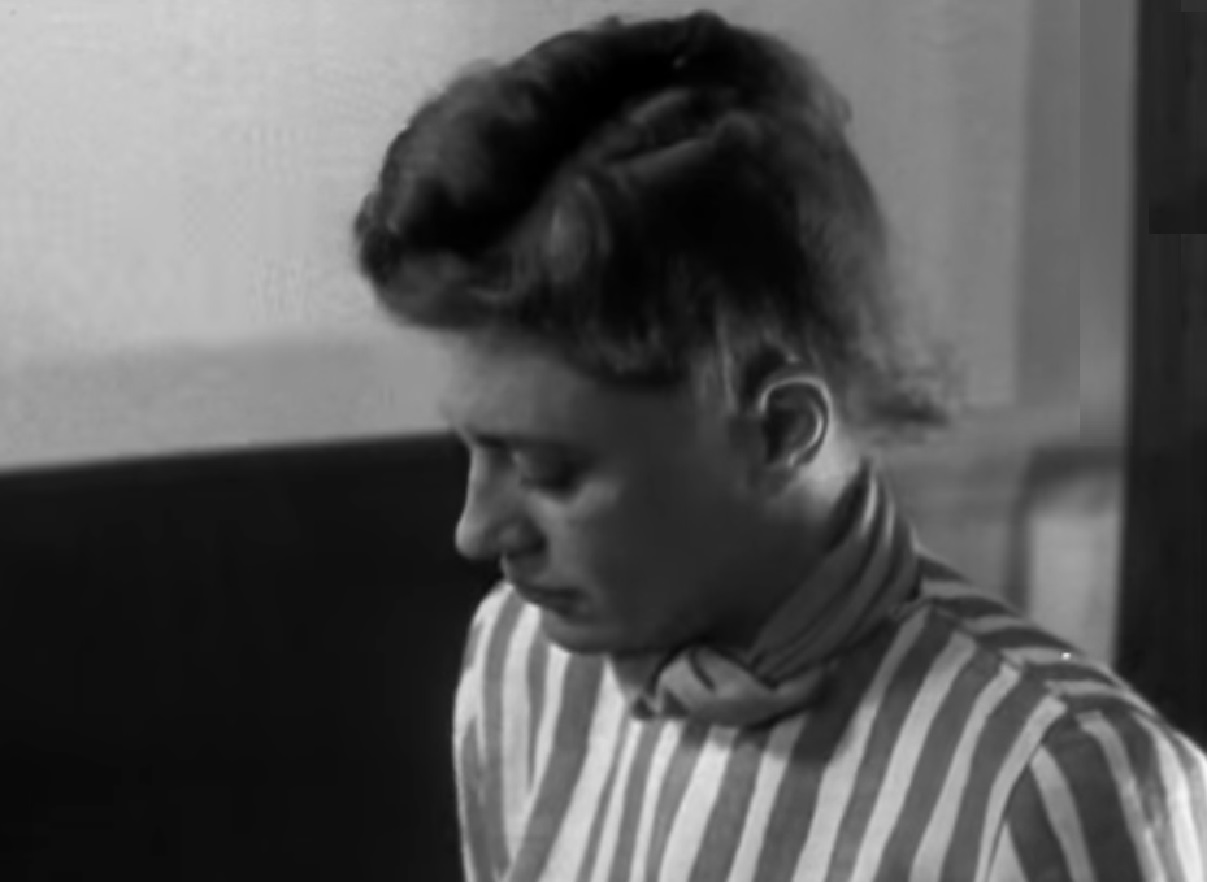 Artemis Film, Lee Miller: Through the Mirror (1955)
Artemis Film, Lee Miller: Through the Mirror (1955)
35. She Was At The Dawning Of A New Era
Miller was never one to stay on the side lines, and she put herself in graver and graver danger as WWII went on. Soon, she wasn’t just near the front lines; she was on them. At the siege of St Malo, she witnessed and recorded the very first use of napalm, and was on the ground for the Battle of Alsace. This began to take an enormous toll.
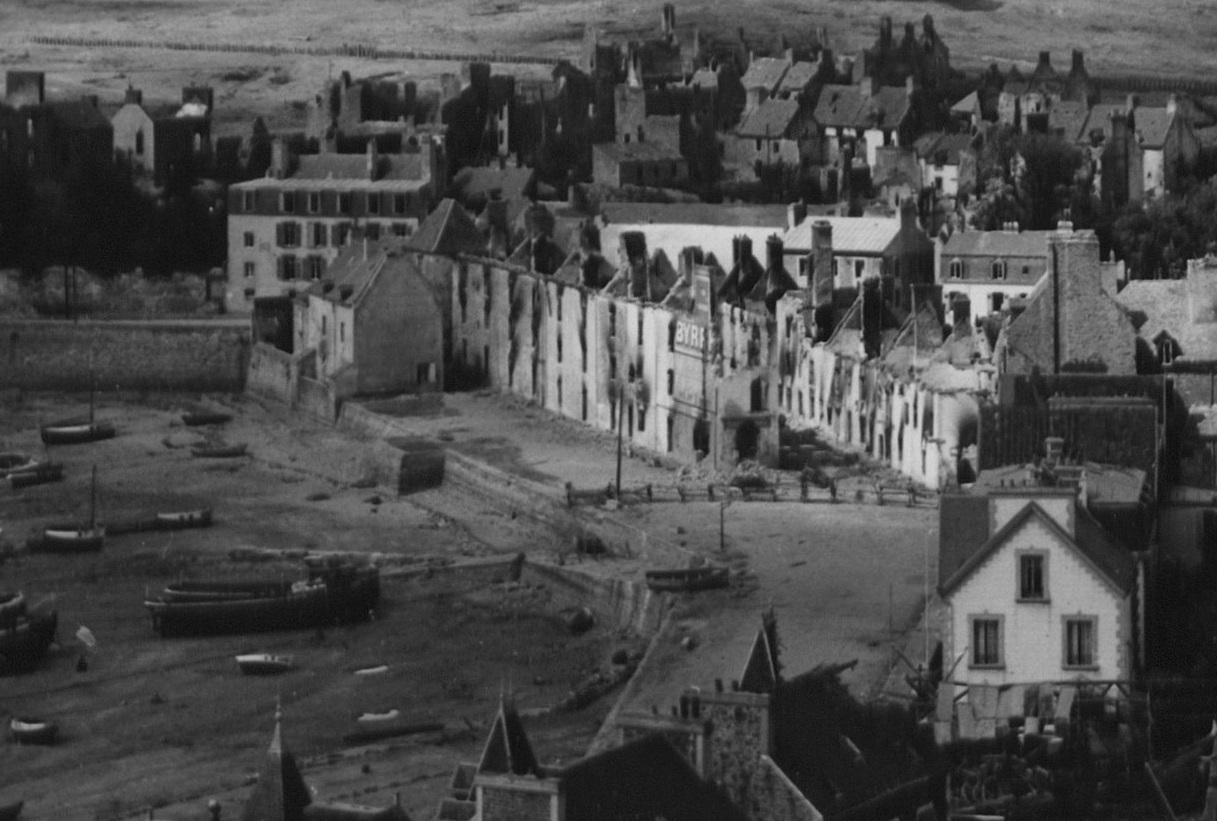 USAAF 9th Air Force, Wikimedia Commons
USAAF 9th Air Force, Wikimedia Commons
36. Her Photos Are Disturbing
Miller corresponded frequently back to Vogue, and her letters reveal a bottomless anguish. In one missive, the normally steely woman admitted, “I usually don’t take pictures of horrors. But don’t think that every town and every area isn’t rich with them”.
The horrors that seeped through her work, though, are enough. Some of her photographs from this time include a German officer’s body lying, cold and still, in a body of glittering water. Worse scenes were to come.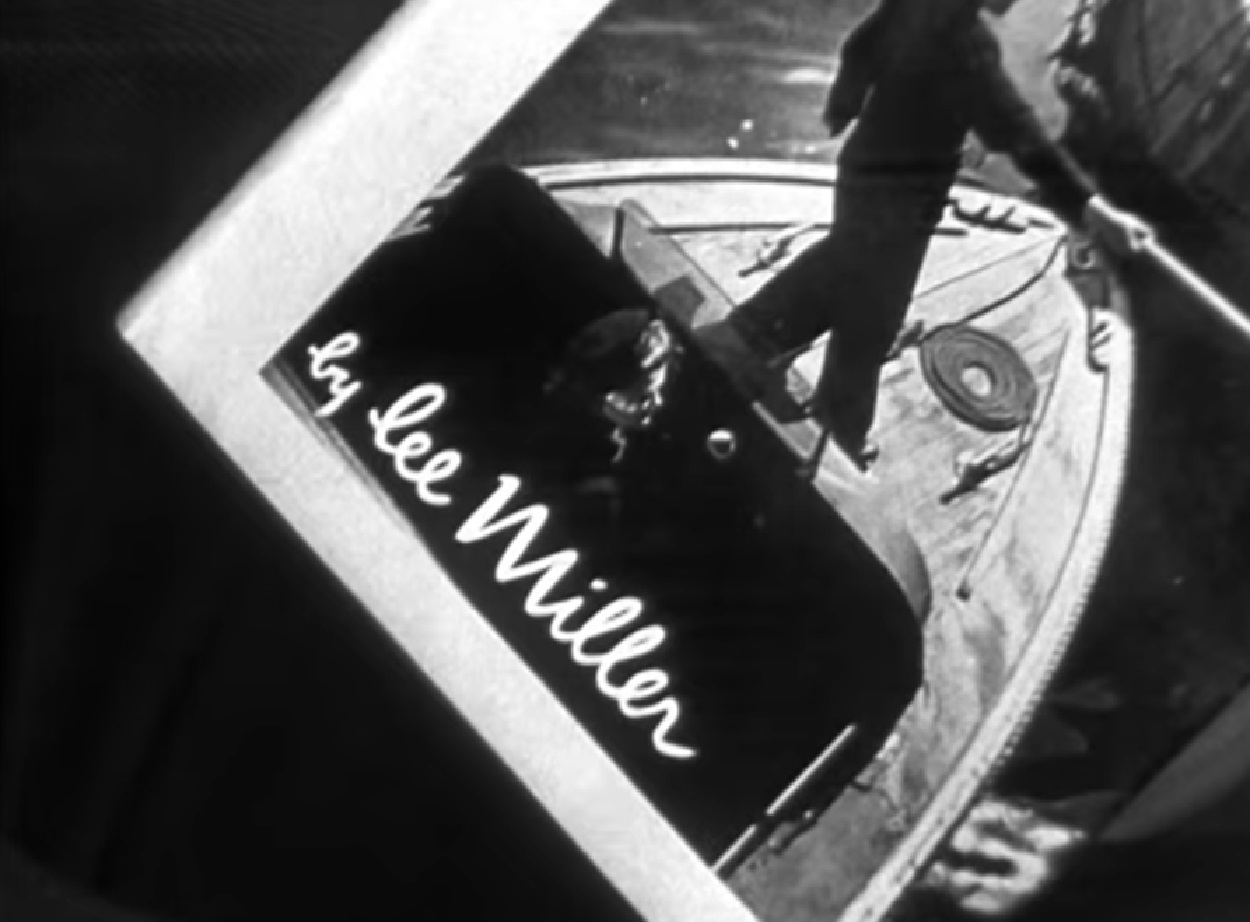 Artemis Film, Lee Miller: Through the Mirror (1955)
Artemis Film, Lee Miller: Through the Mirror (1955)
37. She Saw What No One Should
Around this time, Miller also witnessed one of the defining nightmares of the 20th century: The liberations of camps like Dachau and Buchenwald. After experiencing these conditions, she wrote to Vogue with an urgent message, along with photos, for people who denied the Germans were doing this to Jewish People: “I IMPLORE YOU TO BELIEVE THIS IS TRUE”.
The photographs contained in her message were beyond the pale.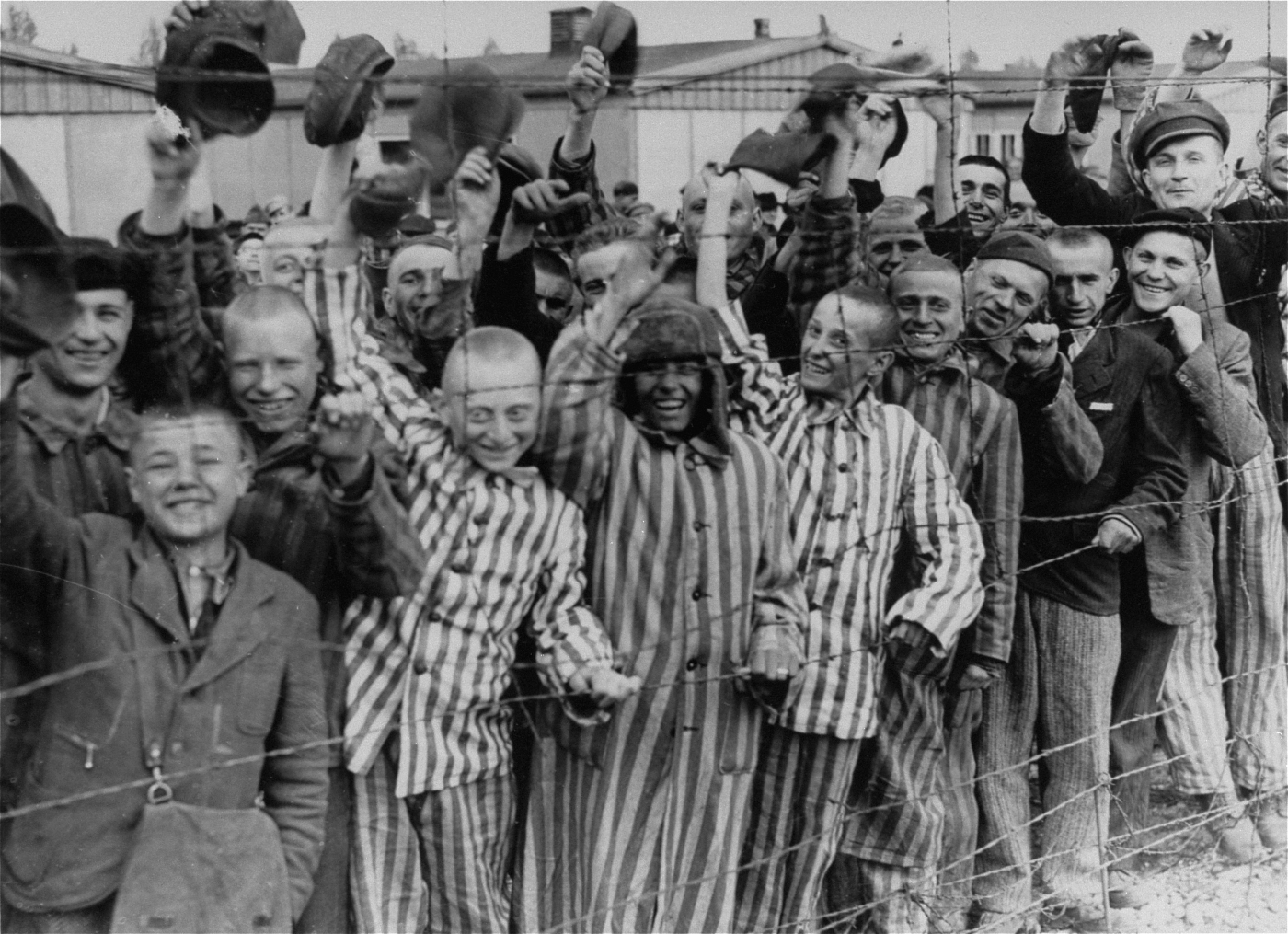 United States Holocaust Memorial Museum, Wikimedia Commons
United States Holocaust Memorial Museum, Wikimedia Commons
38. Her Work Made Grim Headlines
When Miller sent the camp photos to Vogue, she expressed some doubt that the magazine would even be able to publish them—but the June 1945 edition of the magazine did so anyway, under the headline “Believe It”. The contents were so disturbing, they truly can’t be shown here, but believe me when I say Miller recorded the horrors with an unflinching eye.
The piece launched Miller into the wider public consciousness and helped turn Vogue into a voice of a generation. But it’s not what made her famous.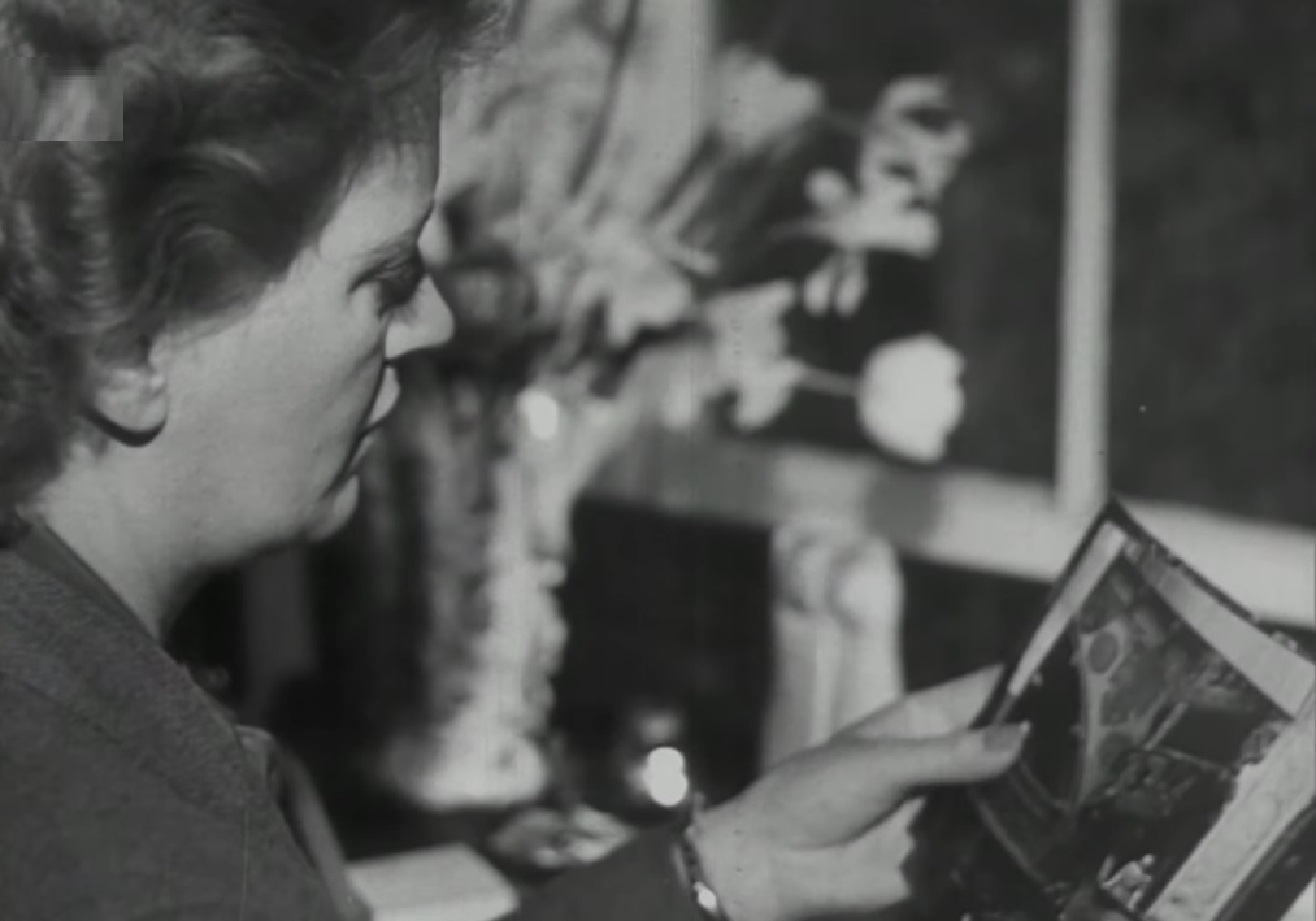 Artemis Film, Lee Miller- Through The Mirror (1955)
Artemis Film, Lee Miller- Through The Mirror (1955)
39. She Went To An Infamous Address
By April 1945, the conflict had swung firmly in the direction of the Allies, and the German high command was fleeing every which way. Miller knew what she had to do. For years, she’d had the address of the Fuhrer’s apartment in Munich in her pocket. After hearing that he’d run away to safer ground, she walked into the unassuming building and right into his unit.
What happened next was iconic.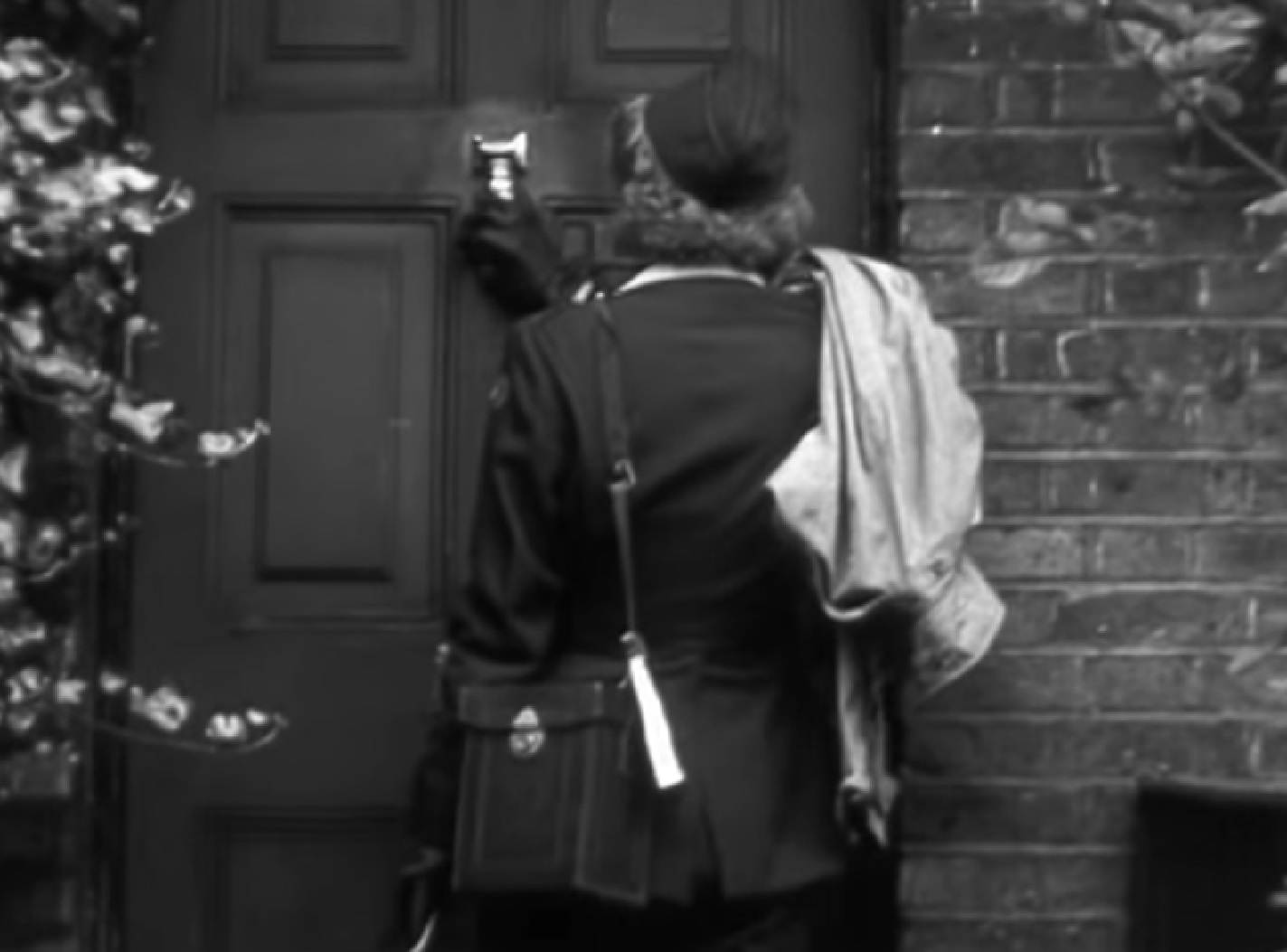 Artemis Film, Lee Miller: Through the Mirror (1955)
Artemis Film, Lee Miller: Through the Mirror (1955)
40. She Took An Iconic Photo
While poking around the apartment, Miller and her long-time photography companion David Scherman decided to stage a photo in Adolf’s bathtub. The now-famous photograph shows Miller in the tub, shower hose around her head and her boots—muddied with the nightmare dust of Dachau—dirtying the top dog’s floor.
It was her way of insulting the Fuhrer, but she went even further.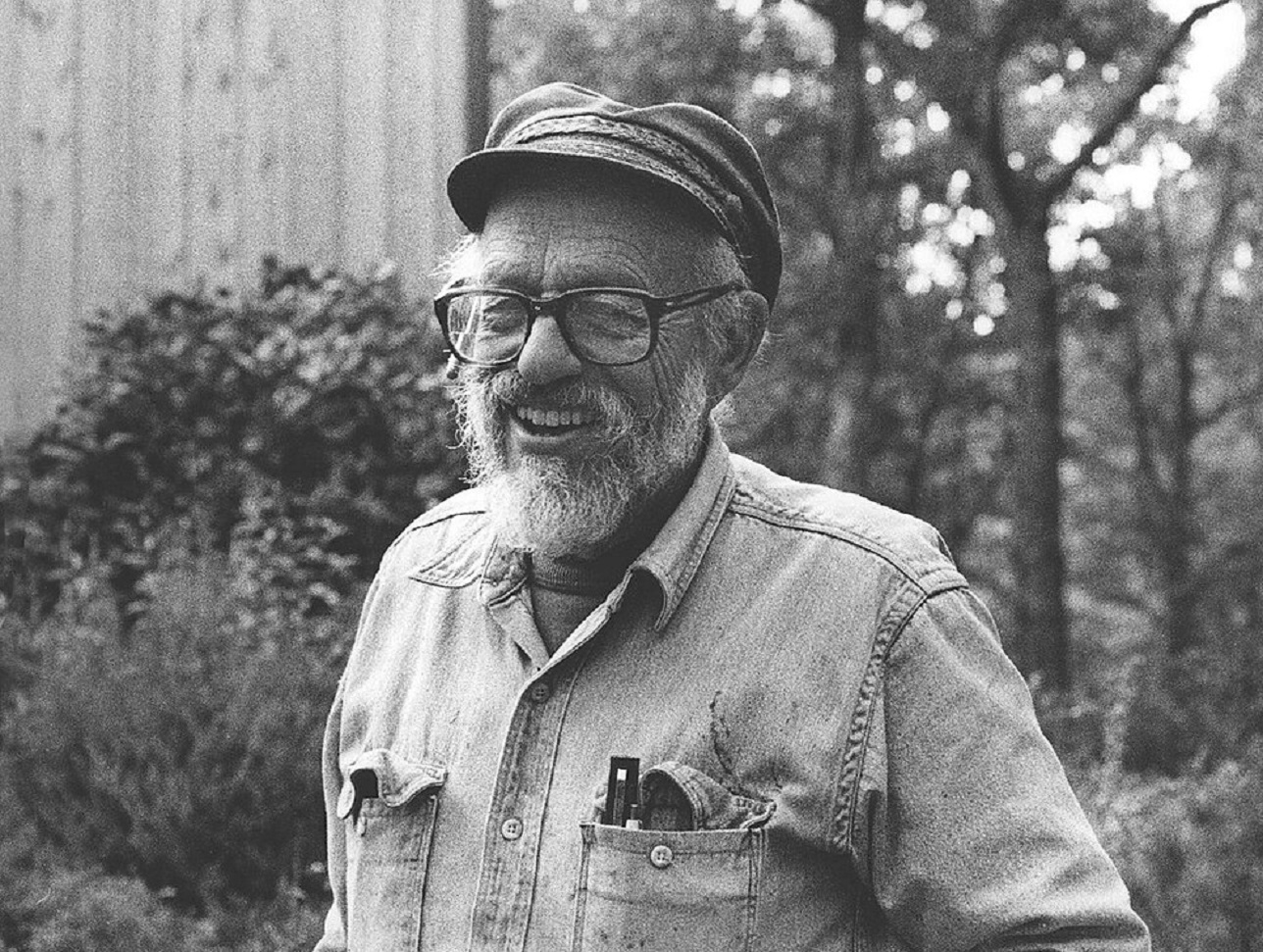 David Scherman- an American photojournalist and editor.
David Scherman- an American photojournalist and editor.
41. She All But Spat In His Face
If you need any more proof of the cold steel of Lee Miller’s spine, get a load of this. After she finished modeling and art directing one of the definitive photographs of WWII, Miller went and slept in Adolf’s bed. When the sun rose the next morning, Miller and Scherman must have known they had something special on their hands. Still, they couldn’t have known the whole story.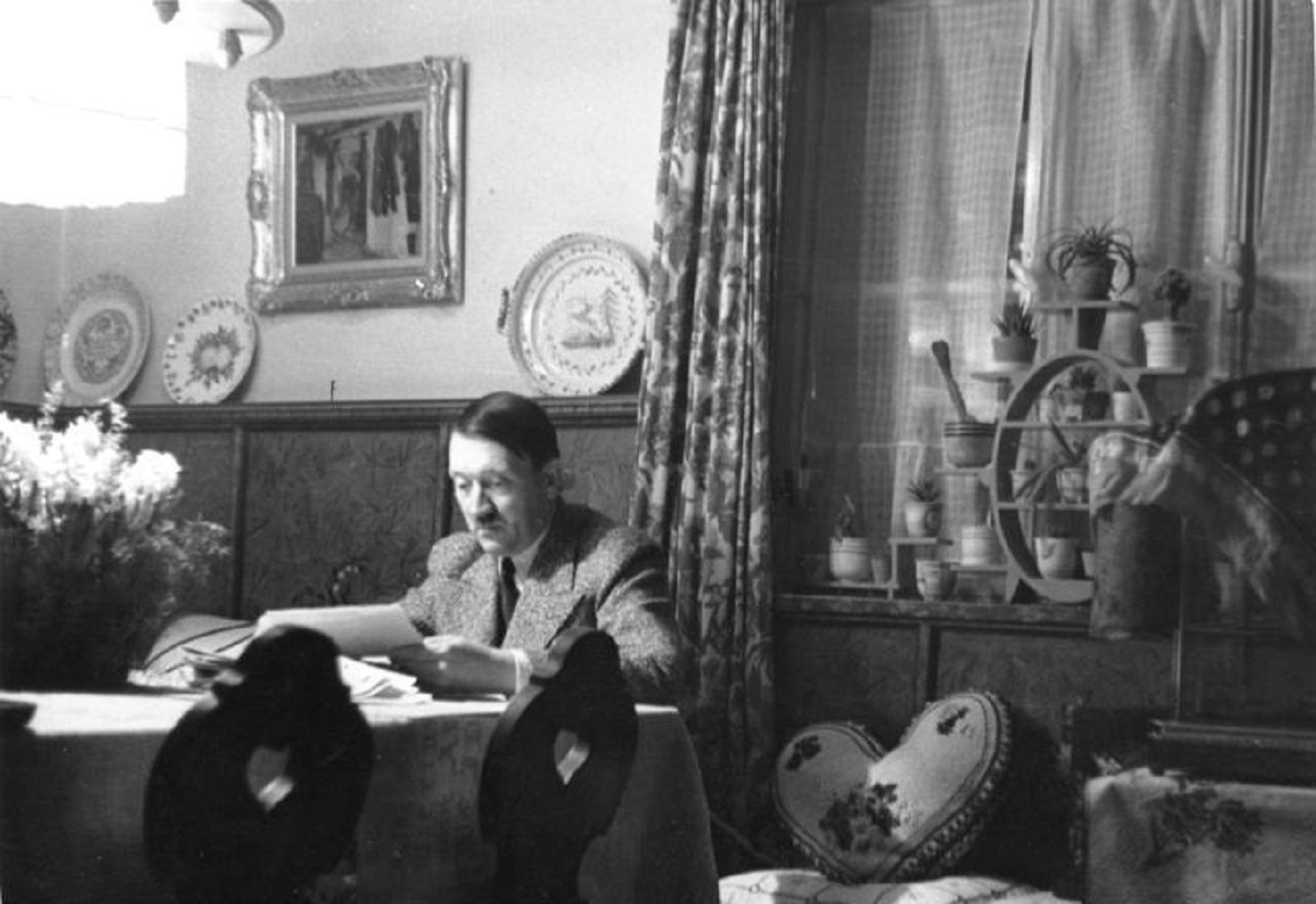 Heinrich Hoffmann , CC-BY-SA 3.0, Wikimedia Commons
Heinrich Hoffmann , CC-BY-SA 3.0, Wikimedia Commons
42. She Had Eerie Timing
Besides the striking imagery of Miller in the bathtub, the photograph is famous for a darker reason. In an eerie coincidence, the pair took the photo on April 30, 1945—the exact same day, they would later find out, that the Fuhrer took his own life rather than admit defeat to the Allies.
It was a victorious time, but that didn’t mean it was a simple one for Lee Miller.
 Bundesarchiv, CC BY-SA 3.0 DE, Wikimedia Commons
Bundesarchiv, CC BY-SA 3.0 DE, Wikimedia Commons
43. She Got A Complicated Surprise
Miller's life became increasingly complex in a unique way following the major conflict. In 1947, when she was just entering her 40s, she discovered she was pregnant with Roland Penrose’s child. This was fraught with problems. For one, Penrose was still in the throes of his affair with Gigi Compton, though he did graciously stop the liaison in the same year. There was another issue, too.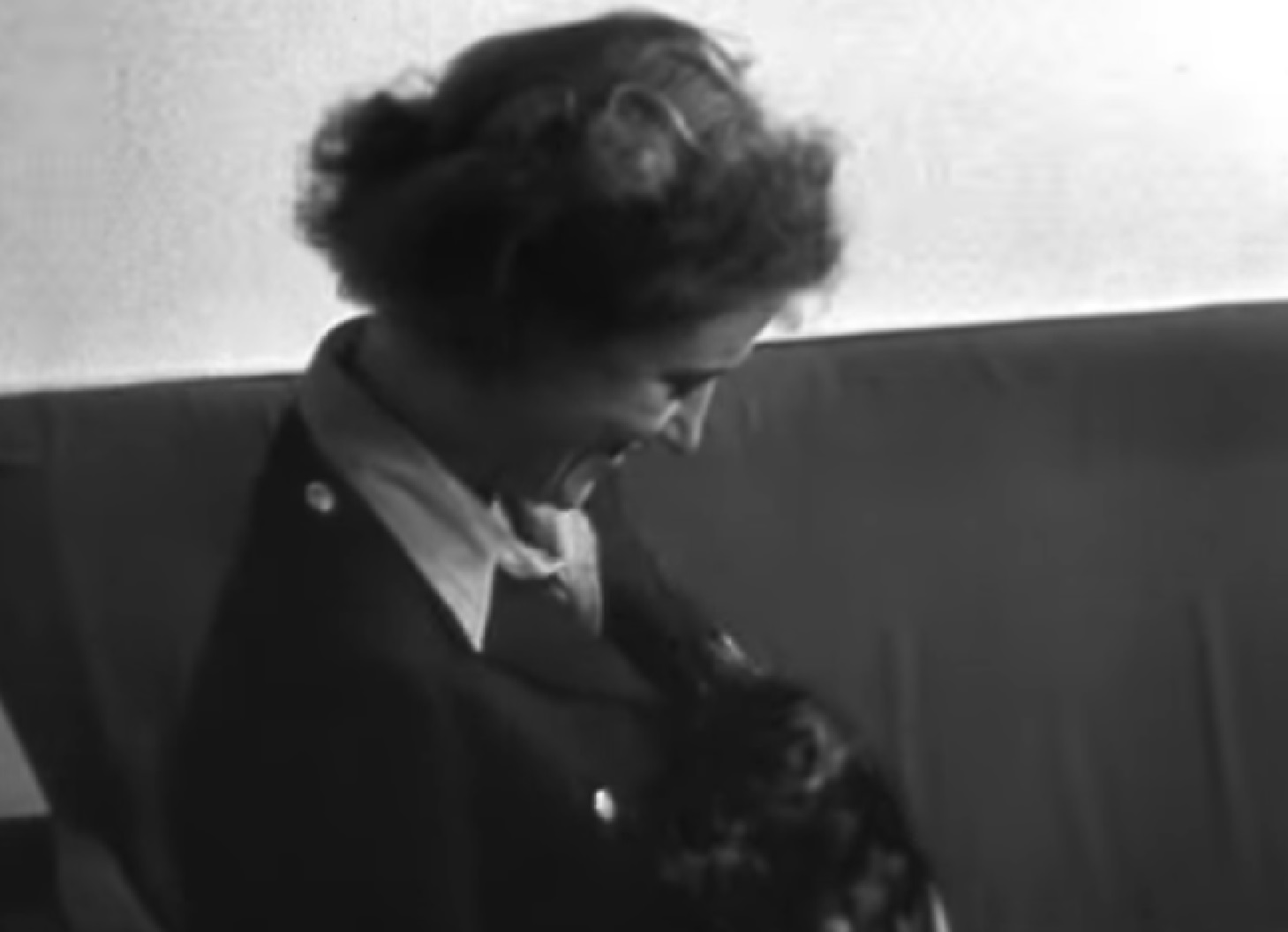 Artemis Film, Lee Miller: Through the Mirror (1995)
Artemis Film, Lee Miller: Through the Mirror (1995)
44. She finally took the plunge.
After finding out about her pregnancy, Miller had to confront an old ghost from her past. See, she and Penrose now wanted to marry…except Miller had never officially divorced her first husband, the Egyptian Aziz Eloui Bey. After a hasty round of signing of papers, she and Penrose married on May 3, 1947, and she had a son, Antony, that September.
Unfortunately, domestic bliss wasn’t in her future. Artemis Film, Lee Miller: Through the Mirror (1955)
Artemis Film, Lee Miller: Through the Mirror (1955)
45. Her Past Caught Up To her
Penrose and Miller soon settled down in Chiddingly, East Sussex, at the idyllic Farley Farm House. But by then, Miller was having a gruesome reckoning. Since returning from the horrors she documented in WWII, Miller had struggled with deep depression and episodes that we would now identify with PTSD.
With little help or understanding for her condition, she turned to dark comforts.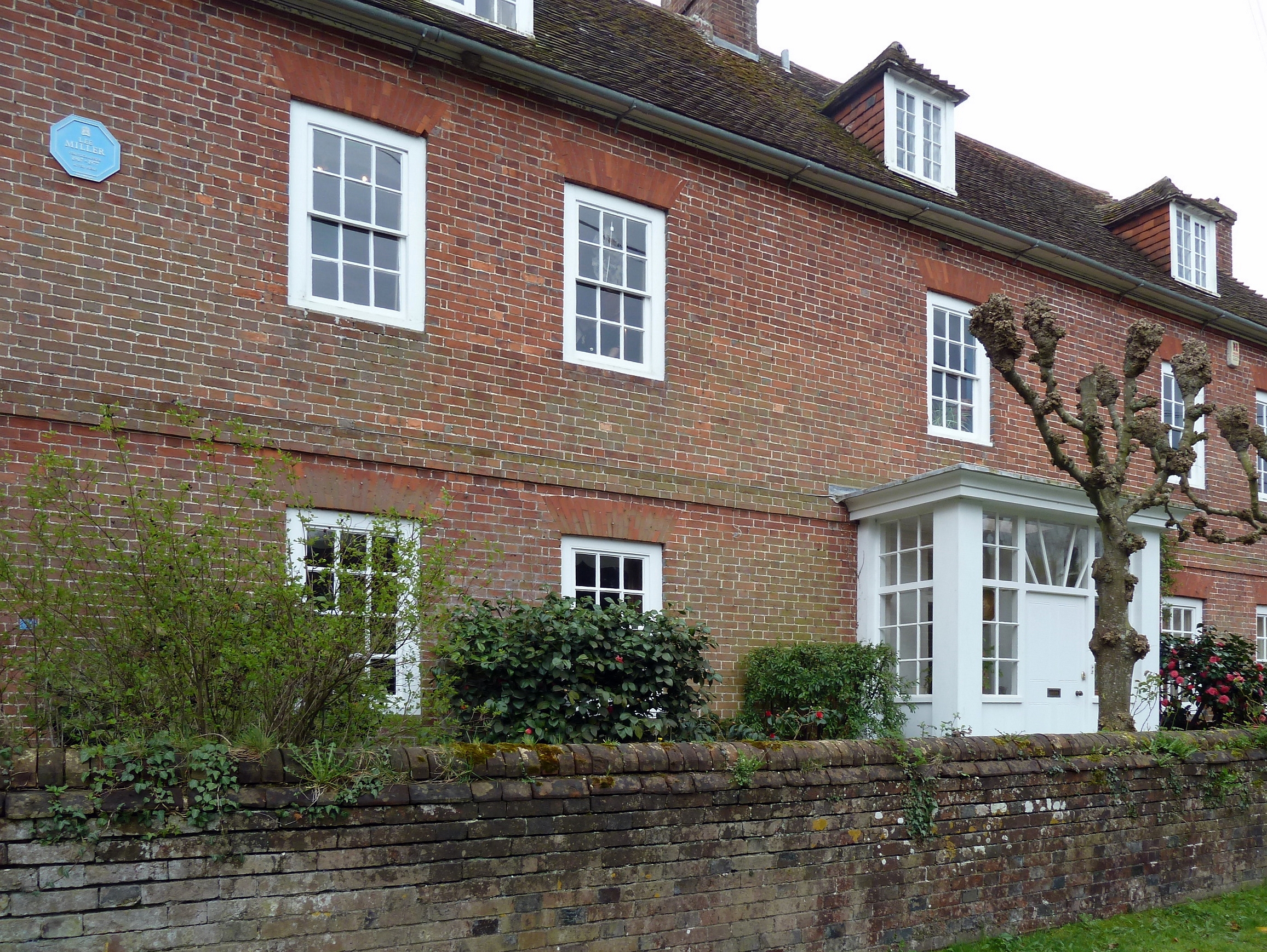 Simon Harriyott , CC BY 2.0, Wikimedia Commons
Simon Harriyott , CC BY 2.0, Wikimedia Commons
46. She Went Into A “Downward Spiral”
As the years went on, Miller began drinking more and more heavily to help soothe her psychic wounds. Yet no matter how much she drank, she could never forget what she witnessed, particularly in the liberation of the camps. Before long, she began what her son Antony recalled as a “downward spiral”. And what a spiral it was.
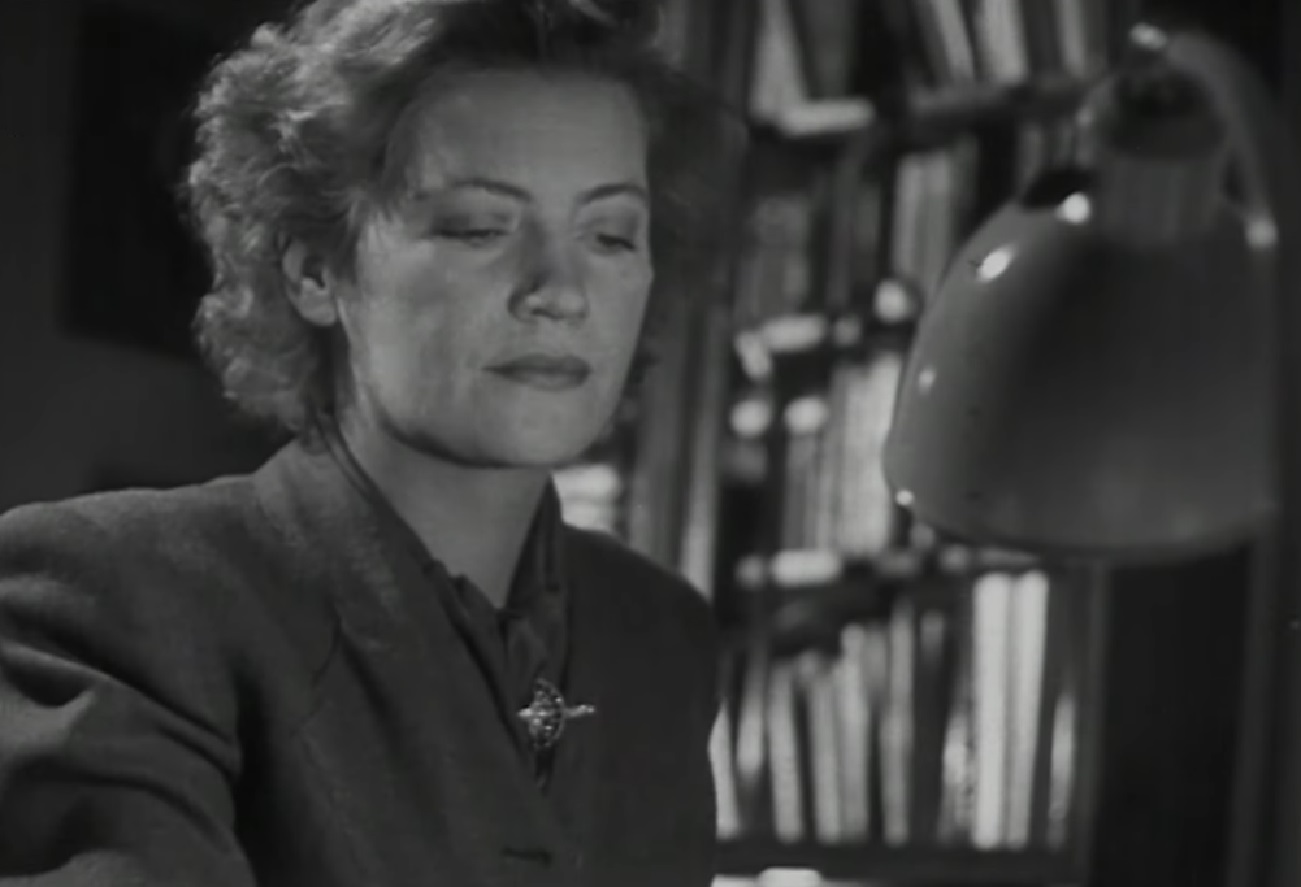 Artemis Film, Lee Miller- Through The Mirror (1955)
Artemis Film, Lee Miller- Through The Mirror (1955)
47. She Tried To Deny Herself
For a while, Miller tried to keep up her photography, but she abandoned it utterly within a couple years. Even when her friends tried to promote her WWII work, she staunchly refused. As her granddaughter put it, “She wanted to move on. She wanted to forget”.
Indeed, Miller rarely spoke about her photography to her son Antony, and nothing at all about her haunting Vogue pictures. But some people couldn’t forget.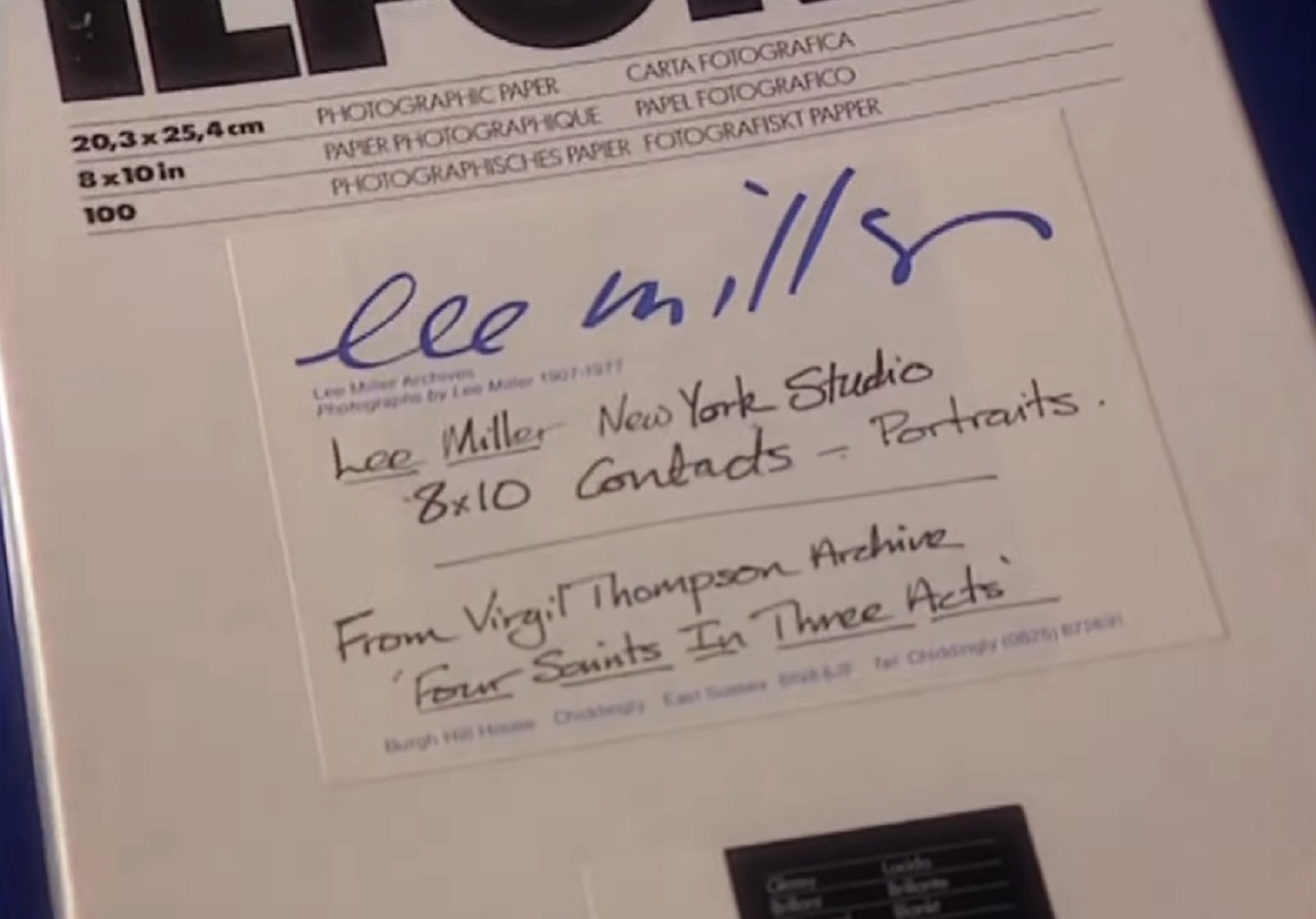 Artemis Film, Lee Miller- Through The Mirror (1995)
Artemis Film, Lee Miller- Through The Mirror (1995)
48. The Government Suspected Her
Incredibly, despite her service to her country in recording WWII, Great Britain gave Miller very little thanks. In the 1940s and 1950s, when she was struggling mightily with her mental health, MI5 even investigated her, believing she could be a Soviet spy.
Even so, it was Miller's husband who delivered the harshest action of all.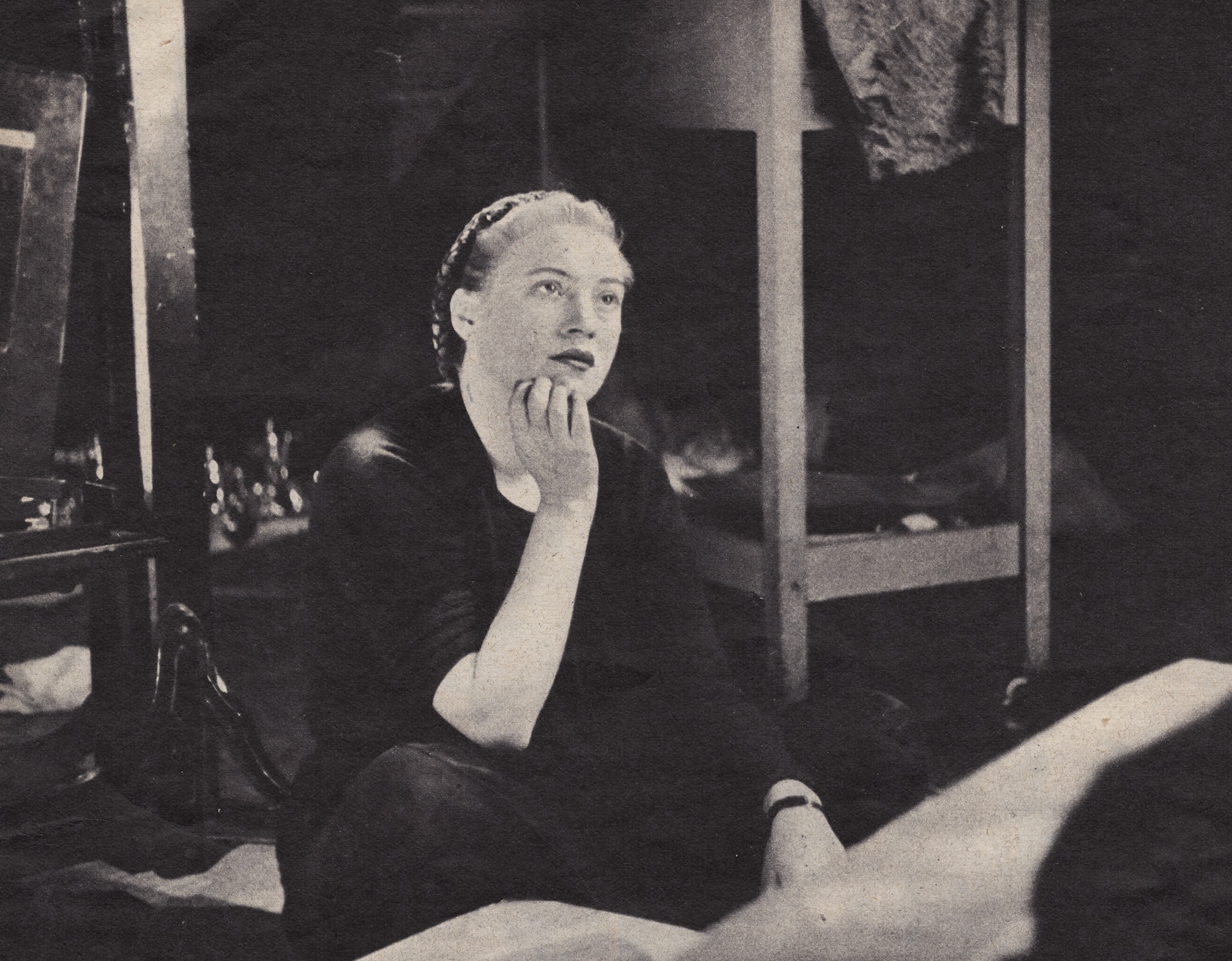 Zoltan Glass, Getty Images - 1940
Zoltan Glass, Getty Images - 1940
49. Her Husband Betrayed Her Again
Miller was certainly a different woman after WWII, but Roland Penrose offered her nothing in the way of a safe haven. Although he had given up Gigi Compton when they first married, it didn’t take him long to strike up another long-term affair with trapeze artist Diane Deriaz, a breaking of his vows that many historians feel contributed to Miller’s depression.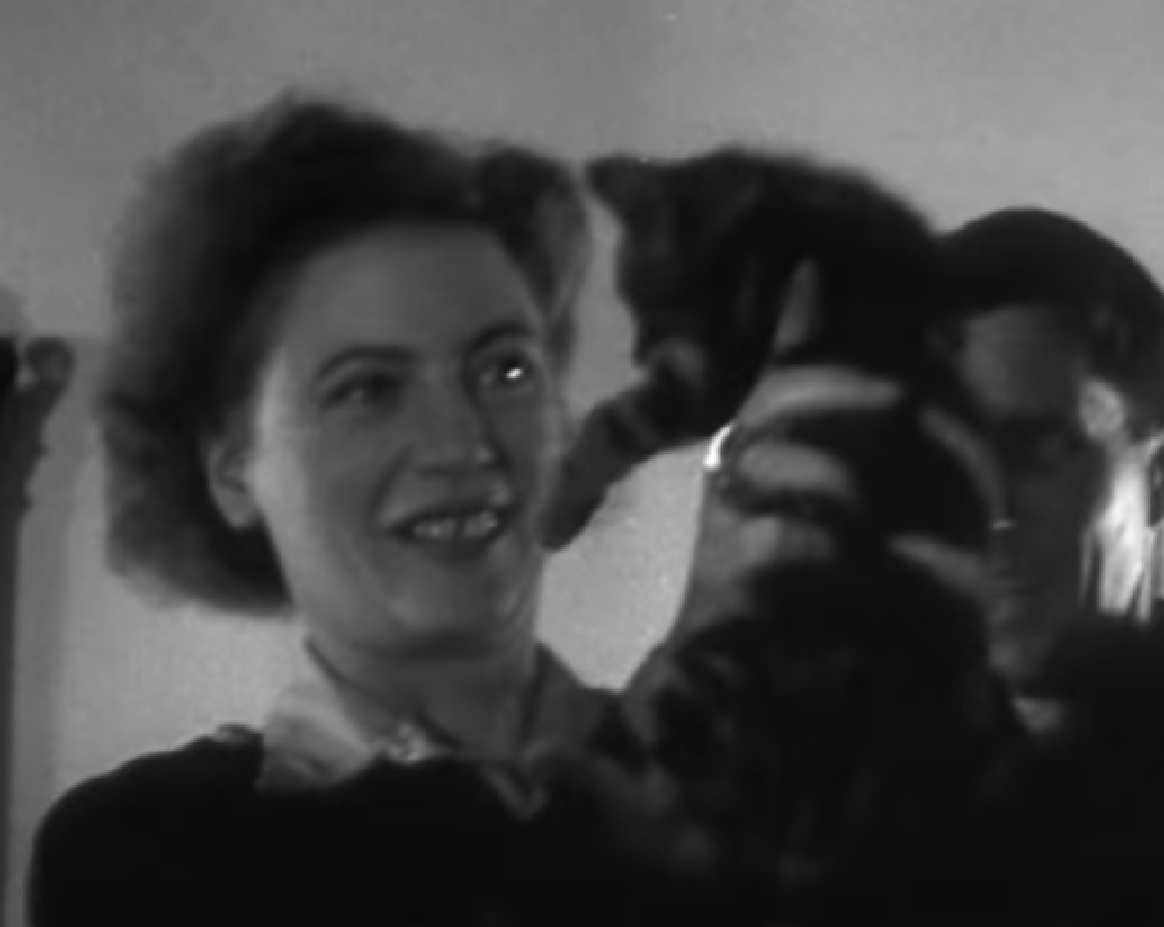 Artemis Film, Lee Miller- Through The Mirror (1955)
Artemis Film, Lee Miller- Through The Mirror (1955)
50. She Still Had A Sharp Streak
Though Miller spent her later life struggling with the demons that followed her out of Dachau, she wasn’t all gone. While keeping house at Farley Farm, she reportedly took a liking to cooking extremely historical, conventional English food like suckling pig. Why? Because the stubborn-as-always Miller wanted to annoy the British critic Cyril Connolly, who sniffed to her once that Americans didn’t know how to cook.
There was one more consolation as well. Rennett Stowe from USA, CC BY 2.0, Wikimedia Commons
Rennett Stowe from USA, CC BY 2.0, Wikimedia Commons
51. She Had An Unlikely Reconciliation
Miller was always moving forward, and always trying to outrun her problems—so it was a surprise to many when she and Man Ray, after years of animosity, reconciled and began a friendship anew. From 1937 until the end of Ray’s life in 1976, they remained companions and confidants. Yet despite how much younger Miller was than Ray, she barely lasted much longer than him.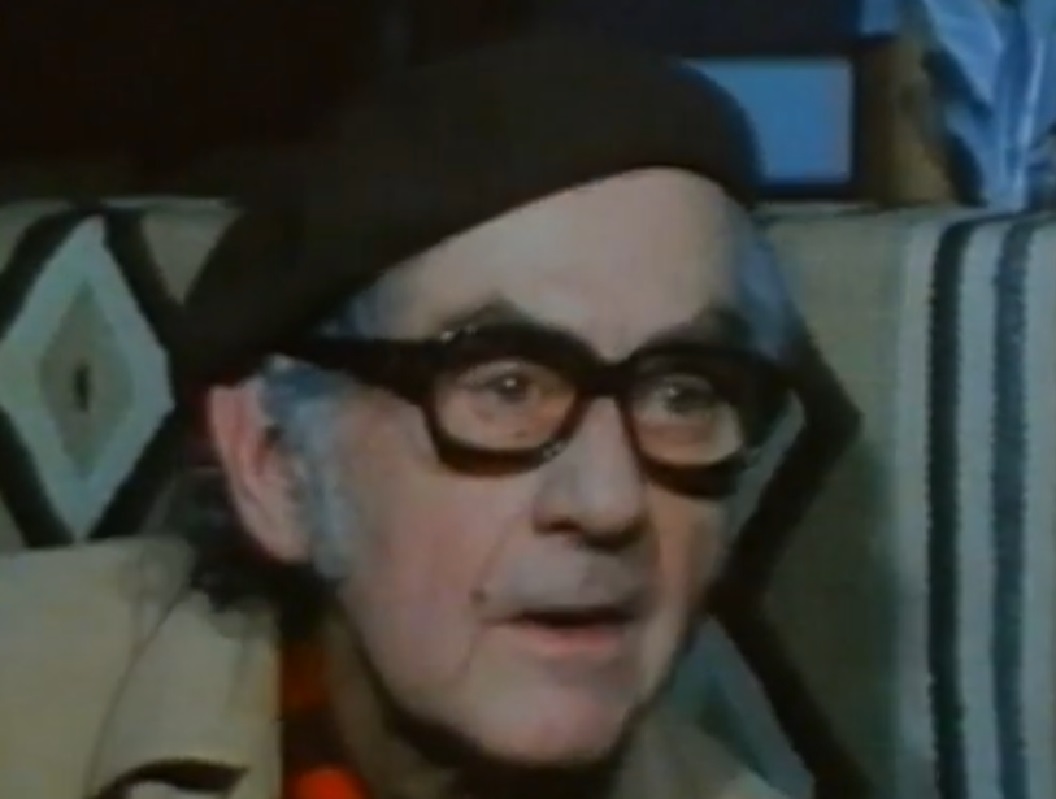 American Masters Pictures,Man Ray- Prophet of the Avant-Garde (1997)
American Masters Pictures,Man Ray- Prophet of the Avant-Garde (1997)
52. She Went Downhill Fast
Miller’s “downward spiral” and drinking took an immense toll on her physical health. By 1977, the year she turned 70, she was gravely ill with cancer. That July, she passed just about three months after her birthday. Roland Penrose and her son Antony spread her ashes in the garden on the family property.
Heartbreakingly, Miller and her WWII work were then largely forgotten—just like she had wanted. But years later, her memory came back with a vengeance.
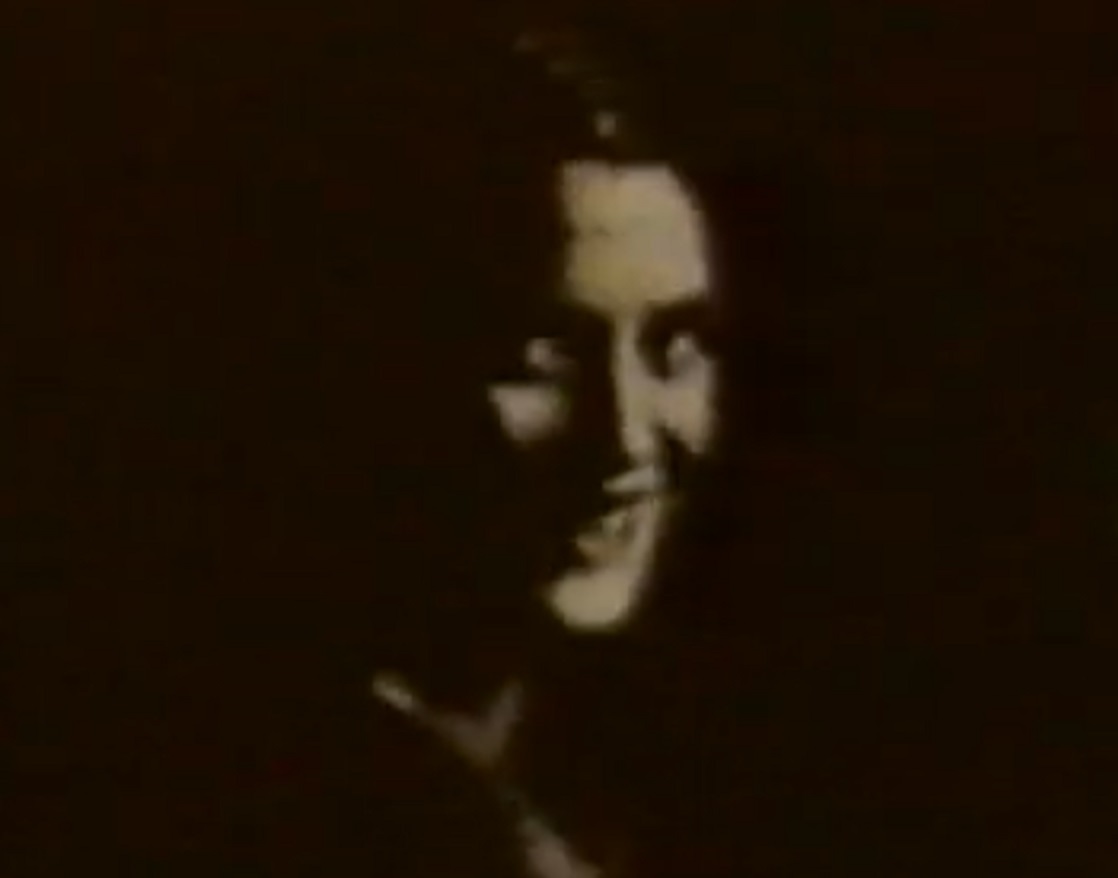 Artemis Film, Lee Miller: Through the Mirror (1955)
Artemis Film, Lee Miller: Through the Mirror (1955)
53. Her Son Made A Huge Discovery
Antony Miller had lived his entire life with a ghostly, ragged mother on the brink. Then one day, he made a discovery that changed everything. While up in the family attic, he stumbled across thousands of Miller’s prints, most from WWII, that he had never seen or heard of before. Their confidence and clear-eyed beauty stunned him. “I could not believe she had been the same person that created this material,” he confessed.
But he wasn’t about to let that person go. From that point on, Penrose worked tirelessly to raise interest in and understanding of his mother’s nearly lost oeuvre. Her respected reputation today is due in great part to her diligent son.
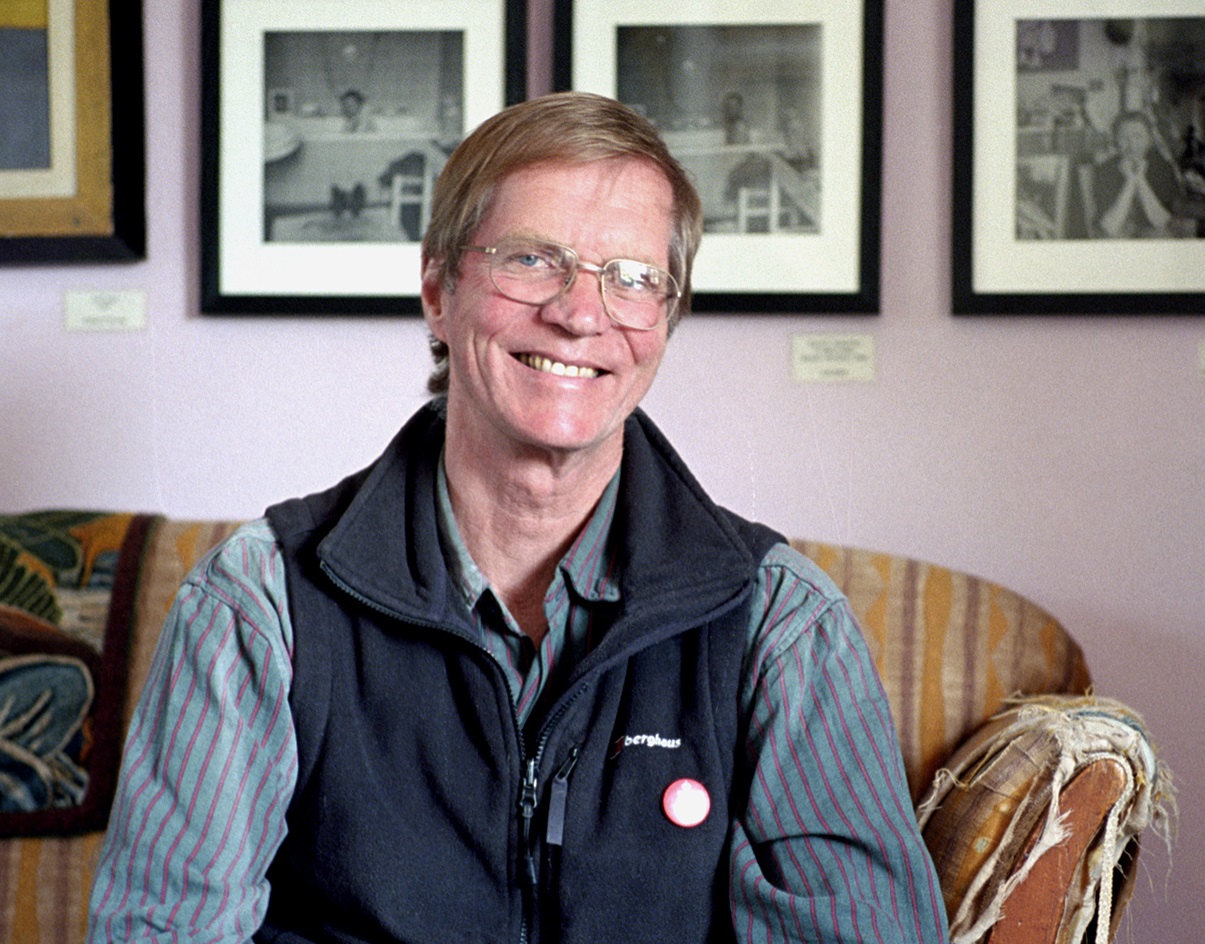 Eopblogs, CC BY-SA 4.0, Wikimedia Commons
Eopblogs, CC BY-SA 4.0, Wikimedia Commons
.


